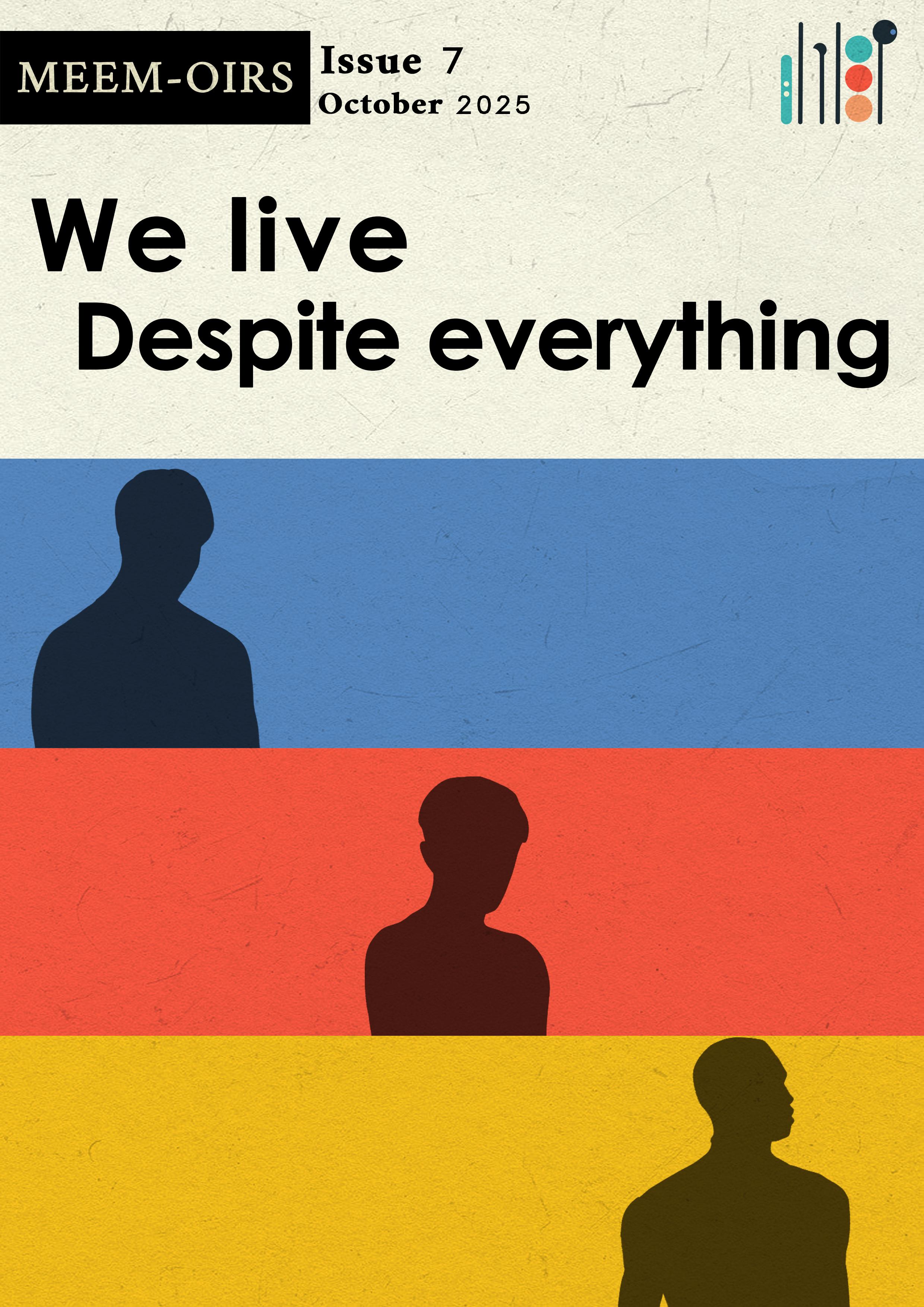

We Live Despite Everything
Three journeys in a body that haunts and recreates itself
In three maps, and in three dialects, the story was repeated. From Sharabiya in Cairo, to the alleys of Bahri in Khartoum, to the Mujahid neighborhood in Tripoli, they emerged swaying between the question: “Who am I?” and the question: “Why am I not allowed to be?”
These three, with different experiences and features, had never known each other, but what brought them together was clearer than knowledge: family betrayal, sexual violence, police persecution, their authenticity questioned, and the harsh journey from a homeland that was never a homeland, to an exile that does not claim to be one.
Each one of them came from a broken home, but they didn&39#;t break easily. They resisted. They wrote. They screamed silently. Their bodies were broken, turning them into rocks in the face of oppression. Their identities were shaken, so they wove it themselves with personal threads, leaning toward chaos rather than discipline, fluidity rather than rigor, fleeting love rather than fixed roles.
• Mohamed left Egypt, fleeing a police force that raped him and robbed him of his life, health, and safety.
• The "crazy faggots" of Sudan built a community within a community, then carried it with them on every migration journey, triumphing with drunkenness, poetry, and group dancing over the merciless societal honor.
• As for Nofal, he left Libya with childhood wounds and a beauty that society could not tolerate. He entered Canada amidst the ruins of a small body that had tried to love in a square among the buildings, only to discover that homesickness is not an emotion, but a linguistic trap that is meaningless to those living in a gray grave without a headstone.
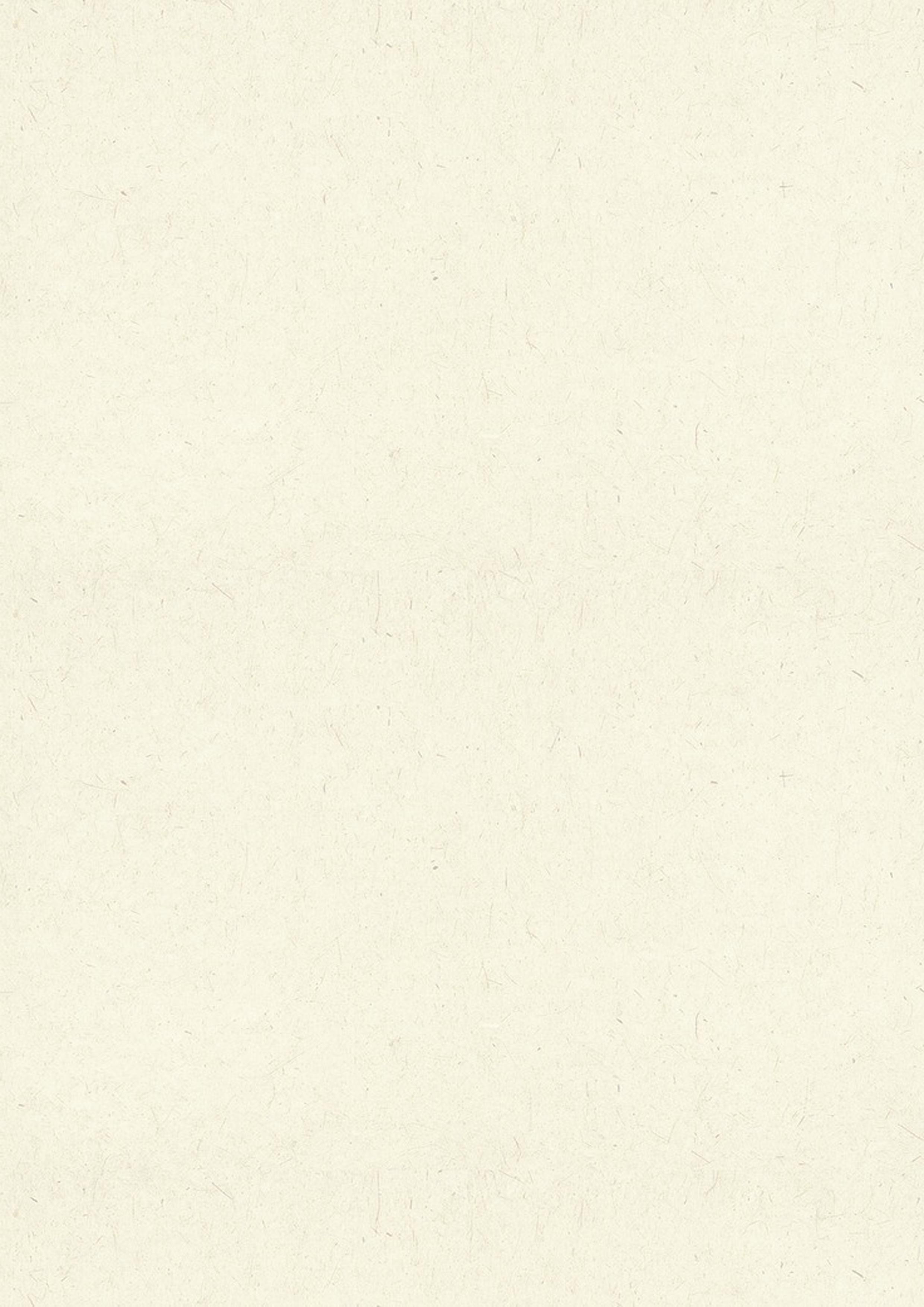


The three of them, despite the different circumstances, lived:
• institutional violence that sometimes disguises itself as a father, sometimes as a policeman, a manager, or a statesman.
• family betrayal that wears the mask of care, then destroys when the time comes.
• queer communities that were supposed to embrace them, but at many moments exercised their symbolic, economic, and gender violence as well.
• a displacement that did not begin from borders, but from childhood.
But they also experienced moments of pleasure, belonging, fleeting love and hope.
Each of them searches for home, not in a spatial sense, but as an emotional state: to be accepted without modification, seen without censorship, loved without conditions.
They reject integration as a political demand. They reject false performances in love.
They reject hierarchies of victimhood that require you to suffer in order to be heard.
In their stories, one sentence is repeated in multiple forms: "It is not my responsibility to justify. My responsibility is living with dignity."
Here, we don't offer testimonies to gain sympathy. We write because we deserve to be written about. We write because we live despite everything.


Editorial Overview
This booklet documents three personal testimonies of queer people who have experienced brutal violence, flight, betrayal, and resilience, across different contexts in Egypt, Sudan, and Libya. These texts do not seek to prove innocence or gain sympathy, but rather to tell the truth as its authors lived it, without revision, without softening, and without evasion.
These stories were collected in moments of real connection, shared willingly and consciously, and with clear consent to be re-told and published in this form. When translating the texts from Arabic, we have been careful to preserve each person's voice as it is, with their tone of life and resistance. The names used may not be real, and some details have been modified to protect the narrators' identity and safety.
We invite readers to approach these texts slowly, carefully, and with a high degree of empathy and responsibility.
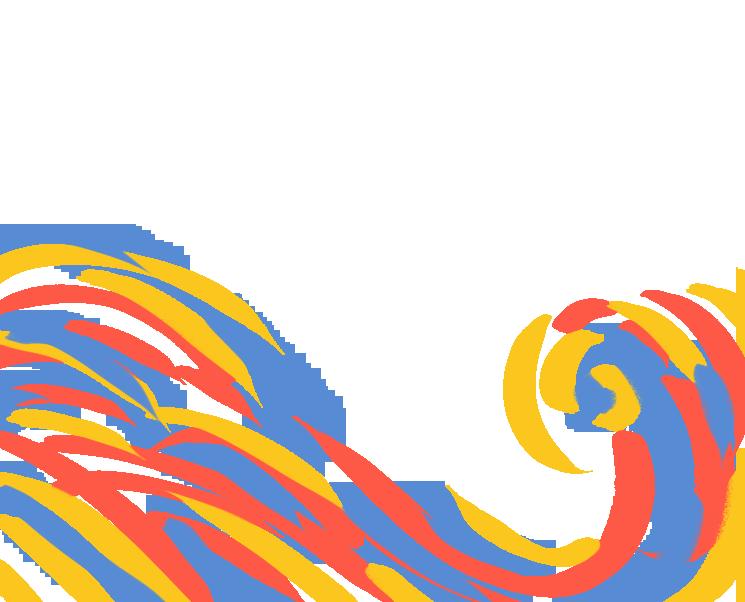

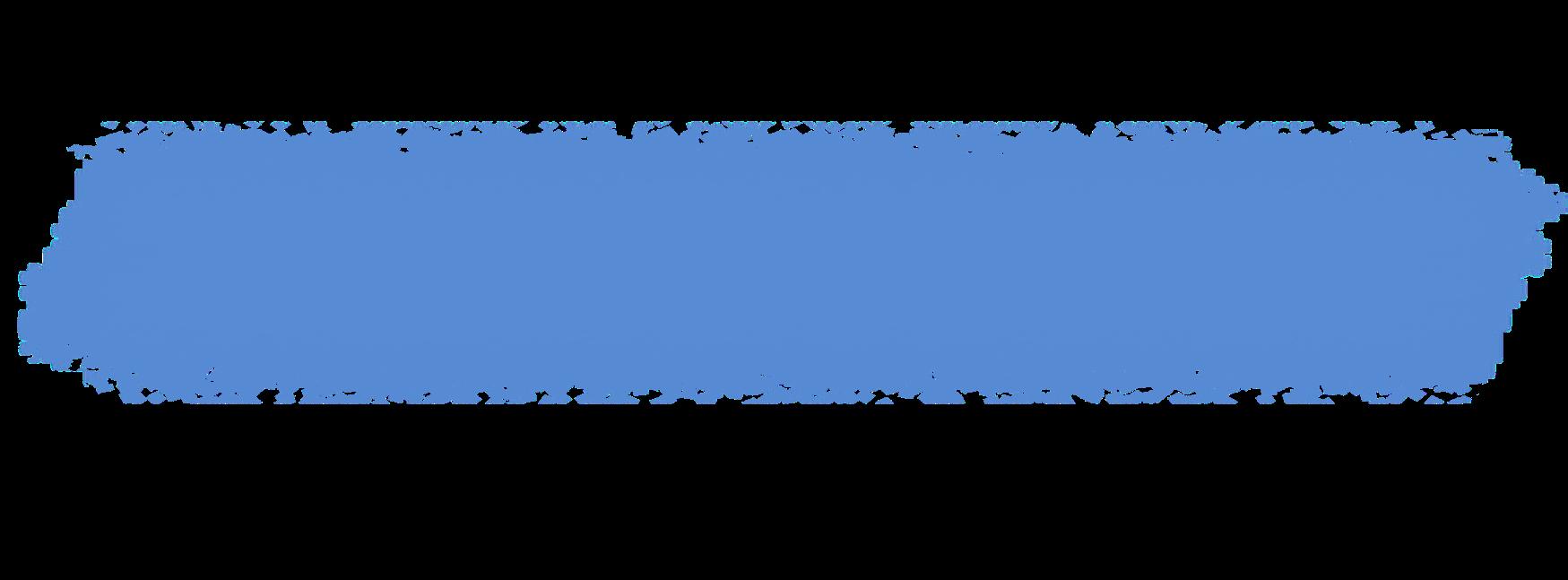

Narrative Introduction: "We Live Despite Everything"
Each one of them left his home with a bomb in his heart, planted by his closest people. They left not just to escape the violence of a state or society, but also to escape an internal collapse that was happening silently, in the bedroom, at the dining table, in front of the mirror, or after a post on Facebook.
Three stories starting from three countries, but all carried on the back of one body: a queer, marginal, resistant body. A body that was broken and betrayed, betrayed by family, by a lover, by the street, by the queer community itself, and by the police.
• Mohamed, whom Egypt tried to kill, and who fled harassment and abuse to queer communities that weren't necessarily safer
• And Nofal, the Libyan whose childhood was filled with questions about manhood, love, and Islam, and who confronted his identity at the time of revolution and fragmentation, and rebuilt himself in Canada
• Walid, the Sudanese, who created his own language and identity, in the absence of any support, and brought queerness out of the mud and blood, from one war to another, but decided to play music instead of remaining silent
In each of their stories, there is physical and emotional betrayal, a stabbing in the back, and the loss of home, country, and the body as a safe space. But they also have a strange insistence on life, on meaning, on creating an alternative. What connects the stories is not sex or escapism, but anger… anger that not only is your life being stolen, but that you're also being told you're to blame… anger that every attempt to survive has to overcome a million barriers: laws, family, society, gender, religion, appearance, accent, and paperwork. But there are other things they have in common: beauty despite ugliness, resistancedespite fatigue, and laughter that comes out despite everything.

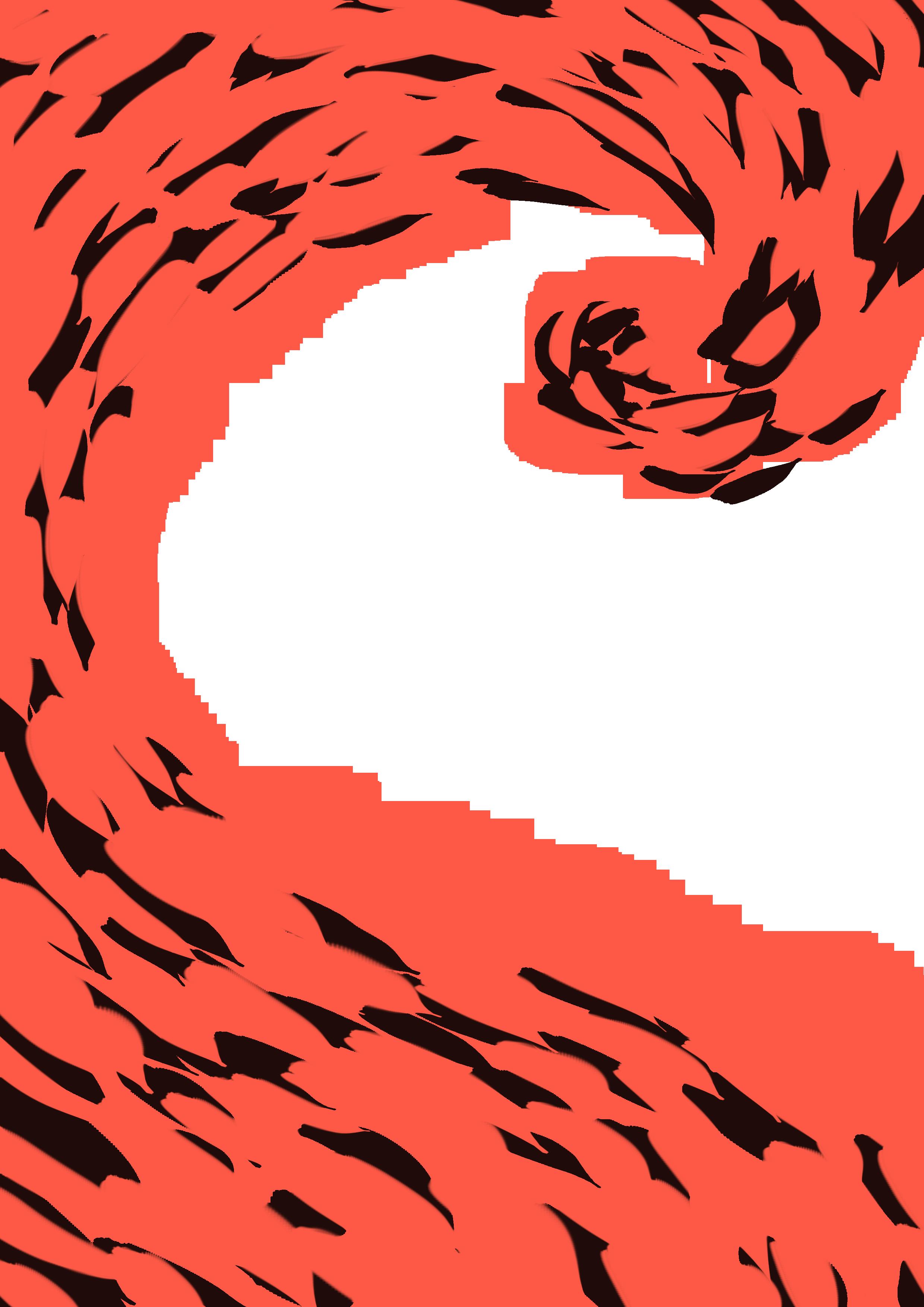

Chapter One: The Beginnings of Consciousness and Identity
I am gay and I don't like stereotypes. I can say I am queer. Since I was nine years old, I've felt attracted to men. It all started when I saw a scene on TV. I felt things I didn't understand at the time. I felt aroused and scared, because my home is, after all, a conservative one. It's not easy for me to feel something and my feelings go unnoticed.
From an early age I was aware of my identity and knew that I did not conform to gender roles. I was worried about the idea of what to wear and what not to wear because I didn't want to be one-faced, I mean I didn't want to be feminine or masculine, I like to be in the middle, and I always had that problem: standing in the middle. I had difficulty expressing myself verbally, and for a long time I thought that I needed to socialize with heterosexual people to learn from them how to adapt, and then I decided that I didn't want that logic, and that I would act within the limits of society and what was appropriate for me. I am genderfluid and not religious, and this increased the complexity of my relationship with society, but I wasn't extreme in terms of expression, because I knew that society would stop me. I love mixing what I want with what society can allow. This is something people don't understand. But when someone new comes into my life, I make sure to let them know the whole package.
I accept my identity %100, and I didn't reach this acceptance until I was 25, when I accepted everything and nothing shook me anymore.
Many of the words used today to describe gender and sexual identities—such as “gay,” “queer,” “nonbinary,” and “genderfluid”—come from Western cultural contexts, originating within social systems very different from those in which we live.
In our Arab societies, the queer experience is not only expressed through words, but also through silence, fear, insinuation, and daily surveillance by home, the street, religion, and the law. We do not say this to reject these concepts, but to ask: Is it enough?


Can we define ourselves with words that don't reflect how we feel, our encounters withreality, or our everyday language? In this story, as in many, the gap between ready-made categories and actual experience is revealed.
It shows how a person isn't looking for a "name" but rather a space to be themselves without translation or justification. That's why we write, not to put people in boxes, but to expand language.
To say: We're not required to be understood in a language that is't ours. We carry with us experiences and identities that require a language from here—a language that listens, not categorizes.


Chapter Two: Professional Life and Marginalization in Egypt
I studied Computer Science and worked for an electronics maintenance company. After a lot of struggle, my career was in the best shape in terms of income, but I was subjected to harassment and discrimination at work because of my appearance and the fact that I wasn't typical, and I was subjected to outright physical harm.
The experiences of violence queer people experience in the workplace cannot beunderstood in isolation from the economic structures that exclude them. Gender and appearance discrimination not only harm them physically and psychologically, but alsoexclude them from employment opportunities, job security, and the ability to advance in stable career paths. In societies that criminalize queer identities and ridicule non-conformist gender expression, it is difficult to hold down a job without being constantly exposed to rejection, harassment, or even physical danger.
Thus, many of us fall into a vicious cycle: violence excludes us from work, reduces our income, and forces us to accept precarious, dangerous, or unstable jobs—exposing us to further abuse. This form of economic marginalization is not a detail; it is one of the most prominent tools of control over us, depriving us of independence, the ability to secure housing, access to healthcare, or even freedom of movement.


In a capitalist world governed by relations of money and property, we cannot talk about queer "empowerment"without opening up a discussion about economic justice: How do we provide real opportunities to break this cycle? How do we create collective resources that protect us from poverty? And how do we rethink "success" outside the logic of the market and forced adaptation?

Chapter Three: Disappointments within the Queer Community
Socially, I didn't have a strong support network, and I didn't feel like I fully belonged to the queer community because of the differences in mentalities and the lack of common ground, which led to a lack of understanding. I tried, but I failed.
I had two negative experiences within this community that made me move away from it:
The first experience was with a person I've known for a year. We had a friends with benefits relationship, and when we traveled together, he brought a stranger from a dating app, to sleep with him, and this person robbed us both, and I had suspicions and accused them both, and with time I became certain of his innocence. But still I felt insecure.
The second experience was years ago when I had been preparing alone to travel. Then I had an experience with a group of people with whom I was preparing to submit a group asylum application to the Dutch embassy from Lebanon. Later, they went before me and took my passport and visa from the office, then they lured me and I met them in a cafe in Imbaba and they blackmailed me financially, and we had a fight in the cafe and I was beaten, and in the middle of the fuss I pulled myself together and ran away. I went back home and my friend came to me so we could think of what to do, then I found my passport in front of the apartment with the Lebanese visa cut out of it.
The visa was valid for two weeks, and I didn't give up. I tried to apply for a visa again, but it was rejected because I lost the first visa.

Marginalized communities do not escape the reproduction of oppression simply because they are subjected to it. Rather, sometimes, when the forms of violence and domination experienced by their members are not dismantled, these communities become fertile ground for the repetition of the same tools: exclusion, blackmail, betrayal, and physical and symbolic violence. Queer communities are no exception.

If these spaces are not built on the foundation of political analysis, collective awareness, and a sincere desire for collective survival, they can become a mirror of the larger society from which we have fled.
When power, privilege, class, and individual versus collective survival are not rethought, the"community" becomes a miniature version of the existing order—but more complex, because it carries promises of love and belonging that are not fulfilled.
Betrayal in this context is not only a betrayal of individuals to each other, but a betrayal of the very idea of a safe space. Therefore, the painful question must be asked:
Are we merely creating spaces for escape? Or are we actually trying to build an alternative that doesn't repeat the same pain? Queer communities aren't necessarily virtuous. But they can be, if they choose to look inward, hold their violence accountable, dismantle their silences, and build a solidarity that isn't based on exploitation or individual escape.


Chapter Four: Structural and Domestic Violence
I have a chronic problem with violence. This was one of the main reasons I left Egypt. When I was young, I was sexually assaulted by my aunt's husband, which led to a deterioration in his relationship with my aunt and ultimately their divorce after the matter was exposed. The result of the breakup was that their children were left without proper care and became street children.
After my aunt's divorce and my mom's death, my aunt's children kept coming to my house to blackmail and bully me repeatedly. They were veteran street kids who would come to me at night, drunk, and demand money. Once, one of them hit me with a knife in my hand. Another time, I was with a friend and I confronted them and beat them up. I decided to file an official report. But it turned out that they were informants with the investigations assistant. Two days after I filed the report, the police came and took me. I spent 17 hours at the police station, during which I was raped by the detective assistant and subjected to a "ceremony", a humiliating and physically and psychologically harmful practice.
The violence the narrator experienced in this chapter cannot be understood as a series of isolated incidents. What we see here is an integrated, structural violence: it begins with the child's body, moves on to family betrayal, extends to police complicity, and ends with a crime committed in the name of the law.
When family ties crumble, protective institutions collapse, and the child is abandoned to his fate amid poverty and oppression, the body becomes vulnerable to abuse by everyone: relatives, "street kids" and even the officer who has the legal authority to rape him without accountability.
This form of violence is not merely an individual deviation; it is an organized construct that links state repression, the collapse of care, queer stigma, and class discrimination.

It is a system that not only harms bodies but also systematically punishes survivors. In the absence of any accountability or justice, police stations—rather than being spaces of protection—become instruments of punitive torture, especially against bodies that deviate from the norm, whether in appearance, behavior, or identity.
Therefore, when we talk about domestic violence, we do not stop at the home.
Rather, we ask: How does this violence expand when it colludes with the authorities? How does society punish its victims when they seek help? What this chapter recounts is not just a personal tragedy, but a reflection of a political and social structure that practices symbolic and physical murder in the name of stability.

Chapter Five: The Collapse of Social Circles
My identity was always clear, even if I didn't announce it directly, anyone who looked carefully enough could discover my true identity.
Being honest has caused me a lot of problems. I was used to expressing my opinions even if people didn't like them. For example, when Sarah Hegazi was being insulted, I wrote a post defending her. My colleagues had seen me as a macho, workaholic person before, which confused them. They chose to categorize me as "woke".
The physical violence I experienced made me set clear boundaries with




Chapter Six: HIV Infection
I had many reasons to leave Egypt.I contracted HIV and discovered that my sisters were in contact with the thugs who visited my house. I used to receive calls from a "private number" threatening me and telling me to stay away from A.T., an investigations assistant at a police station in a district north of Cairo, who was trying to sexually assault me again. I learned that my HIV infection was a result of what I was subjected to at the police station. I reported the matter to the station chief, but he denied any knowledge.
After I reported the matter to the police station chief, I received a death threat call. The pressure increased over time, especially after they found out where I worked and went to the office to look for me. Fortunately, I wasn't there. They wanted money, and my sisters were helping them, even though they knew everything about my identity. My aunt was the one who told my sisters'; husbands about my life, not me, and she was keen to spread the word, even though she had known about it from the beginning.
In this chapter, several circles of violence intersect: a security circle, a family circle, and a health circle. All of them center around the narrator's body, not as a human subject, but as an object of desire, oppression, and silencing. Violence here does not stop at the boundaries of the body; it infiltrates work, the phone, and the family.
When someone is infected with HIV as a result of systematic rape in a police station, and the institution denies responsibility, this is not only a crime—it is a slow assassination of justice. More dangerously, this type of violence cannot be easily confronted, because its tools are distributed: the threats from an unknown number, targeting from within the family, and the use of Health information as a weapon of intimidation and criminalization.
In many contexts, queer people are asked to remain “good children” to families who don’t believe in them, to be “respectable victims” to a state that tortures them, and to “recover” in a health system that implicitly criminalizes them.
But this story reveals something deeper: that vulnerability stems not from sexual identity or health conditions, but from a system that uses all of these to dismantle and blackmail the human being. In this chapter, it seems that home has transformed from a place that is supposed to offer protection, into a network that besieges, besieges, and keeps besieging—until the survivor has no choice but to flee.




Chapter Seven: Escape Attempts and Failure
After being rejected by the embassy and losing my first visa to Lebanon, I became determined to leave. I wasn't even living in my own home, and the only option I had was to travel in transit. I was worried about that. But I did have a visa for Türkiye, and my plan was to either fly from there to Amsterdam, or head to Georgia and from there to Amsterdam. In Amsterdam, I intended to apply for asylum an hour after arriving.
I was unable to fly directly to Georgia due to security clearance requirements and because the visa was not stamped in my passport, as there is no Georgian consulate in Egypt and visas are only issued online. So I traveled to Türkiye, but I never felt a real farewell. I no longer felt anything at all, due to the successive disappointments from those closest to me. I tried to prove to them that my life had improved, and I felt like someone trying to buy love at any price, but they defeated me.
In Türkiye, after everything I went through in Egypt, I met a nice young man. He was one of the reasons I considered staying and applying to the UNHCR there. But I discovered that Türkiye doesn't offer resettlement opportunities.
Disagreements arose between us, as we had different personalities. Once, I wanted to visit a nightclub near his home, and from his reaction, I noticed that he held some racist views and beliefs, which made me resent him. I discovered that transit was difficult in Türkiye, so I decided to move to Georgia. But the airport employee rejected my entrance after I had stamped my exit permit. They turned me back from the transit area. Fortunately, they sent me back to Türkiye instead of deporting me back to Egypt, because my visa was still valid.
I changed my flight ticket from Georgia to Sabiha Airport to another destination. I prepared myself and decided to board, but after the exit stamp, a flight attendant suddenly followed me, calling out, "Sir, no!"
There were three security guards with her. She told me, "The Dutch airline KLM denied me boarding due to suspicions about my flight." I was then asked to retrieve my bag, which had been shipped to Kenya by mistake and which I never received.

I immediately booked a ticket from the same airport to Beirut. I didn't have the two thousand dollars required to enter Lebanon, but when they saw my previous boarding pass, they took pity on me and let me in. I can't describe how I felt at that moment. I was just in survival mode, and I didn't know what to feel.
When you are robbed of the possibility of safety in your homeland, freedom of movement is not an option, but a survival tactic.
In this chapter, we see how a fundamental right like mobility is transformed into a bureaucratic and humanitarian minefield when it comes to a queer body, coming from the Global South, without all the paperwork, institutional support, or even a stable solidarity network.
Between digital visas not being stamped on the passport, required security clearances, and airlines deciding who is suspect and who is allowed to pass — the structural inequality in the right to movement becomes clear. Queerness appears here not only as an identity, but as a “danger sign” for border regimes: - They suspect your intentions, - Your body is removed from the plane, - You’re banned without trial, - Then you are sent back to a country where you are not safe.
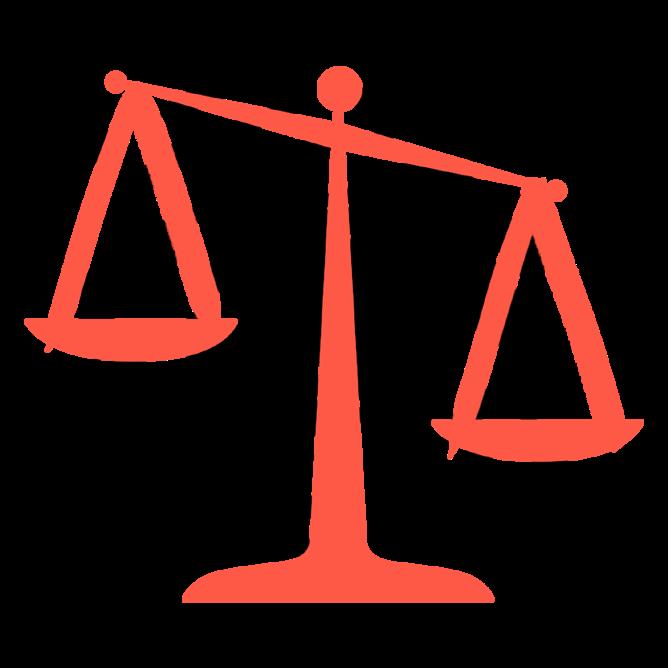
Yet you continue to run away, not because you love to travel, but because you are persecuted by one side, and ignored by the other. Even when a city opens its doors—as happened in Beirut—it is not the result of a legal entitlement, but rather a near-human miracle in a soft moment of the system. This chapter not only documents the suffering of an individual, but highlights a broader crisis: Queer communities in our region are not only unprotected, but also unable to move. No safe passages! No guarantees! What is called "transit" becomes in our case a complete existential experience: It doesn't start at the airport, it doesn't end at the entry stamp, it extends to waiting for the bag that never came, and to feeling like you're surviving—not because anyone wants you to, but because you invented a back way out.

Chapter Eight: Life in Lebanon - Fragile Relationships,
Sex Work, Classism, and the Attempt at Integration
In Egypt, my life changed a lot since my mother found out about my sexual orientation. I started to struggle financially because she used to deprive me of money. She would only give me college expenses. This made me learn to be resourceful. After I started working and had an income, I discovered that I could plan my life and live better. My career path was going well, thank God.
When I came to Lebanon, I was planning to work online, but I faced a problem receiving money, so I had to leave the job. I looked around and saw that most Egyptians were either working as doormen, at gas stations, or as vegetable sellers. With all due respect to these professions, I couldn't work in these fields, so I broke the habit and worked in a clothing store, but the salary was barely enough for me.
Then the war broke out in Lebanon, and the owner of the business had another branch in an area that was being bombed by Israel.
He asked me to unload the merchandise. I told him, "No, that would put me in danger." He replied, "Take it or leave it." In the end, I quit the job. I didn't have many options, and when I was forced to turn to sex work for money, the people around me encouraged me and pushed me to do it. It was very tough, and the money I made from it was a lot, but it didn't provide me with anything tangible. I came out of this experience after a difficult time.
Now I'm working in a good place, and I've started thinking about myself more, and I'm doing things that benefit me. For example, I want to have my teeth fixed, and I want to get a tattoo to cover a mark on my body.



I have more control over my money now, because when I was a sex worker, I used to make a lot of money, but I spent it randomly. So, I'm trying to regain that control, and I've started writing notes about my needs to control my expenses.
In Lebanon, the situation is completely different. I was going in convinced that I wanted to get into a relationship. I opened dating apps, and I always preferred a relationship to start with friendship, then sex, and then maybe turn into a serious relationship. But society here focuses too much on money. If I had money, I would be able to get into a relationship because it depends on spending and financial ability.
Someone came into my life and made me believe he was in love, and I believed him. But he thought I had money, and when he realized I didn't have any, he started ignoring my messages. And when I started having sex for money, more people like that surrounded me. Another person appeared in my life. I felt no feelings for him, but he was a lavish spender. He began barging into my life uninvited and visiting me without warning. Thank God this relationship is over.
I stopped having sex for money after a situation that could have cost me my life. I had agreed with someone on a certain amount of money, and he took me in a car to his house near the Iranian embassy in Lebanon. The place looked luxurious, and he said he was Shiite. After we undressed, we heard loud banging on the door and screaming, and he told me to get dressed quickly. Masked men from Hezbollah stormed in, appearing to be arresting him. Shortly after I left, I saw them take him away, and I later found out he was accused of spying.
After this incident, I stopped working as a sex worker. My mental state was very bad, and clients would offer me extra money to take drugs like ice with them. It was the first time I had tried it, and it had a bad effect on me: I lost the ability to feel any emotions in bed with anyone, even in love relationships.
In Lebanon, they care about the way you look and whether you speak in English. I can't say that this comes from racism, but from an excessive concern with appearance.

I used to work with a Moroccan-Lebanese woman, and whenever she sees me these days she says: "What have you done to yourself? You lost weight and now dress better!" I expected them to be open-minded and aware people, and that I had escaped from a conservative society to a mature one, but it turned out that this was not true. On the contrary, they have more psychological problems than us.
Their language and way of communicating force you to always be perfect, and to undergo plastic surgery to become the center of attention. This does not benefit you, but rather serves the public image that society wants to project. They are more stereotypical and superficial than us, concerned with appearance without depth in relationships. They only want sex, no feelings or real connection. Even their speech is repetitive, and their psychology is "shit" as they put it.
Here, you have to be idealistic. I don't deny the existence of this pattern in Egypt, but in Egypt it's not as intense, nor as exploitative. Lebanese people don't use harsh language, but they don’t have our Egyptian queer attitudes. The Lebanese queer attitudes are evident in nightclubs, dancing, clothing, cosmetic surgery, and in details like conspicuous ear piercings.
Even though there is clear violence here, they tell you: "It's your freedom, do as you please."In Egypt, you might get beaten or fired from your job, but here, as long as you don't harm them directly, it"s okay. They like to be seen as European, even though this is not true, but because they want this impression, they respect personal freedom. My experience with the Egyptians I met here wasn’t the best. One of them, a gay man who worked with me when I was working for money, came to me and said, "We go down to the Raouche area, take people there, and do whatever we want." I asked him, what do you want to say? He said, “You can't put the Egyptian flag on the app and write "cash" next to it."
Under the pretext that shame still haunts us even when we're abroad, my response was clear: "This shame is in Egypt, not here." Our relationship now is normal; we're not friends, but we get along well. Other Egyptians see me as something strange, commenting on my appearance or my earring, and sometimes saying, "Oh, isn't that typical of Cairo?" or "He looks like an Egyptian-Sudanese."
In Lebanon, the UNHCR and some organizations are helping, but nothing from the government. The health issue isn't discussed much, but the UNHCR has places where you can go for free. However, the health sector in Lebanon is a different story.
There was an initiative by the Helem organization on sexual health. We went over some details about integration, and I think they were some of the people who helped me the most. They asked me what I needed to integrate, sent me a link to someone who offered English courses at reduced prices, and helped me financially. In my opinion, integration in Lebanon starts with simple things, like not only speaking Egyptian, but also speaking their dialect or borrowing words from it. Integration here depends on flexibility, and they have to accept your ideas.
When you're a foreigner, they have to see that you follow their customs at first, and then you can start to filter as you please. But the key is flexibility.
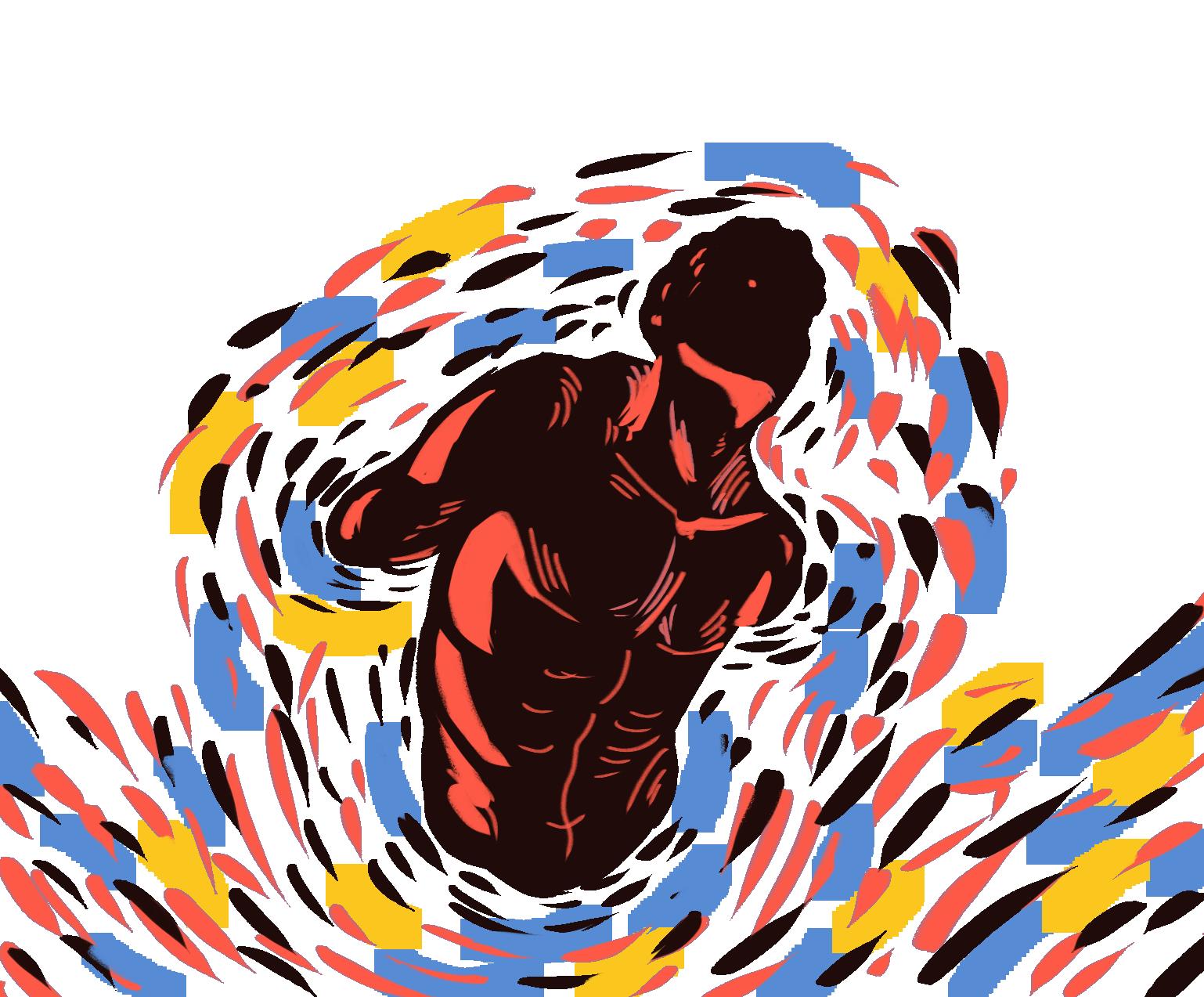

This chapter carries more than just the difficulties of living in a new country; it reflects the fragmentation of identity within a social structure fractured economically, politically, and historically.
In Lebanon, a country that has faced one of the most violent economic collapses in the region, daily life turns into a battle for survival, amid the absence of the state, the privatization of everything, and the widespread logic of extreme capitalist individualism. It is natural, then, that many social relationships are formed within this context of caution, superficiality, and self-interest. A society in a state of scarcity does not have the luxury of free intimacy. Through the lens of this queer experience coming from Egypt, one can observe a clash between two radically different social and cultural contexts:
In Egypt, conservative traditions are clear, and ostracism is direct. In Lebanon, violence is masked by pleasantries, and discrimination is cloaked in linguistic eloquence, yet deeply present. The narrator speaks not only of geographical alienation, but also of cultural alienation within a queer space that is supposed to be more understanding.
Sometimes he clashes with soft classism, consumerist behaviors, or a language that conceals much behind it. The relationship to the body, work, appearance, and integration are all understood not in a vacuum, but rather within the context of a country suffering from systematic economic colonialism, which inherited a neoliberal sectarian system that transforms individuals into a symbol of consumption rather than citizens. Thus, personal freedom becomes a facade, but without a real protective structure.


The experience of sex work appears here not as a stigma, but as a survival tactic amidst a dearth of alternatives. Perhaps what's striking is that the large sums of money obtained did not translate into stability, but rather into greater fragility, because an unstable economy neither guarantees survival nor dignity, but rather opens a temporary door to random spending and compensatory consumption.
As for the culture shock, it appears in the details: in the tone, the dress, the cosmetics, and the invisible sense of class. The narrator discovers that Lebanon is not necessarily the "Europe of the Arabs" as it is promoted, but rather a wounded country wearing the masks of civilization while its citizens take refuge in their consumerist patterns as a tool of psychological defense.
Nevertheless, there are thin threads of hope in the story: the Helem organization, the English courses, the small but effective aid. These are all seeds of the possibility of a more humane integration, but only if it is provided with a nurturing political, social, and economic context.
What this chapter implicitly says: Survival is not only from state or family violence, but from an entire system that turns queer bodies into negotiable materials, and integration into a constant test of worthiness.




Chapter Nine: Looking Back, New Beginnings, and Hope in Australia
My relationship with the street in Egypt was that of fear. I used to be afraid to go out into the street, because someone might do something to me, and that was because of the many frustrations I had. And when I discovered that my family had a hand in it, this increased, and I started walking in the street afraid that someone would hit me. Here I don’t have that feeling, but there is the fear of the unknown. There is relative safety, I did things I always wanted to do. In an area called Ashrafieh, similar to Zamalek, I went for a walk and felt safer than in Egypt.
I wish people would be more accepting of others and that the Arab societies accept differences in general. I mean, the word “weird” is the easiest word we can use to describe each other.
I don't miss Egypt. I might miss my house, but I don't miss my homeland. I lost my national identity a long time ago, and I don't know why. There are those who have experienced more severe and greater tragedies than I, yet they still cling to their homeland, but as for me, perhaps my subconsciousness has closed this chapter.
It was a coincidence that a friend today sent me a photo of us in my old house. I felt nostalgic for the house, even though the hard times I went through there outweighed the good times. I have mixed feelings towards the house. I loved the details I made myself, but in the end, I left. I have yet to experience owning a home here in Lebanon. I lived with someone at first, then we broke up. After that, I moved out and lived with a group of queer and trans people. But not having a private room was difficult.
Recently, I decided to live alone and took a room in an apartment with others.
I started adding my own simple touches: I got a lamp shade, put up some nice decorations, and hung up a picture of my favorite actor that I brought with me from Egypt.
I started to feel my spirit in the place. I always used to decorate my home for Ramadan and Christmas. I hope I can do that at my final destination, not here.

I'm trying to count the effects of all this on my body. I'm trying to live with the new things that have become inside me and that will remain for a while. The experience with the UNHCR isn't easy, because I'm telling my story from the beginning, and they keep asking me to tell it again. This brings back a lot of thoughts, and its psychological effects are profound. Even my trust in people has diminished. I left Egypt without any trust, but here I was harmed even more.
I hold the Egyptian police largely responsible for the state of my life. If I hadn't been imprisoned and hadn't been subjected to the abuses that occurred there, I could have dealt with the various challenges without this.

I'm starting over, even in my thoughts. I'm still crawling.
So excited to find out my final country: Australia. I kept studying the steps I needed to take, and trying to find someone to help me along the way, but people don't always tell the truth or want to help. But I have big plans for the future. There's a song that's a bit annoying, but it somehow stuck in my head: It's called Hung Up, It's about a girl who's trying to move on and live her life, but he keeps getting closer to her and hanging her up.
This chapter brings us a different aspect. It's no longer just an escape from a previous hell, but a negotiation with life from a fragile but resilient position, after the dust has settled and the scars have appeared. Here, the narrator speaks not only of beginnings, but also of what remains of the past in the body, soul, and place.
The experience of home, from Egypt to Lebanon, is not narrated as a physical space, but as a “psychological geography,” oscillating between warmth and betrayal, between simple decorations and hidden siege. The desire for Ramadan decorations or to hang a picture of an actor are not trivial details, but attempts to reclaimthe self within spaces that are still temporary. In the midst of travel, a shocking paradox stands out: The first feeling of safety occurred in a strange place, not in one's homeland. Home here, as the narrator describes it, is not a place, but a burden, a harsh memory, a confused recollection, and a "longing without desire."

Australia, however, is not salvation, but an open horizon. The narrator speaks of it not as a promised land, but as a location where it is possible to plan, perhaps heal, perhaps build a home without the constant worry of threats. But the road to it is not paved. The UNHCR itself is turning into a bureaucracy that reopens the wound with every interview, and the same narrative—over and over again— becomes a painful act, not a healing one.
What this conclusion clearly captures is the depth of the relationship between structural violence and physical memory: How does the body remain a mirror of the past even when geography shifts? How does building oneself become a daily, exhausting project, always starting from scratch? Yet, acknowledging “big plans,” and quoting a simple song, carries within it something precious: an unvarnished hope, a stubborn hope that doesn’t fake difficulty but rather coexists with it, searching for a safe place not just to inhabit, but to belong to. In the next story, we turn to Walid. His voice comes from a different context, but it continues the same thread: a queer body that refuses to be broken, and a political consciousness shaped by pain, war, and exile. A consciousness that re-questions what has been imposed on us as a given: homeland, masculinity, safety, and belonging.
In both narratives, we encounter not a "single story" so much as living texts about how the modern state, in its security and neoliberal forms, produces queer vulnerability as a political and social site.
Escape, concealment, and renegotiation of the self: these are not merely psychological reactions, but daily practices that arise under the weight of complex violence: state violence, societal violence, and the violence of transnational politics.
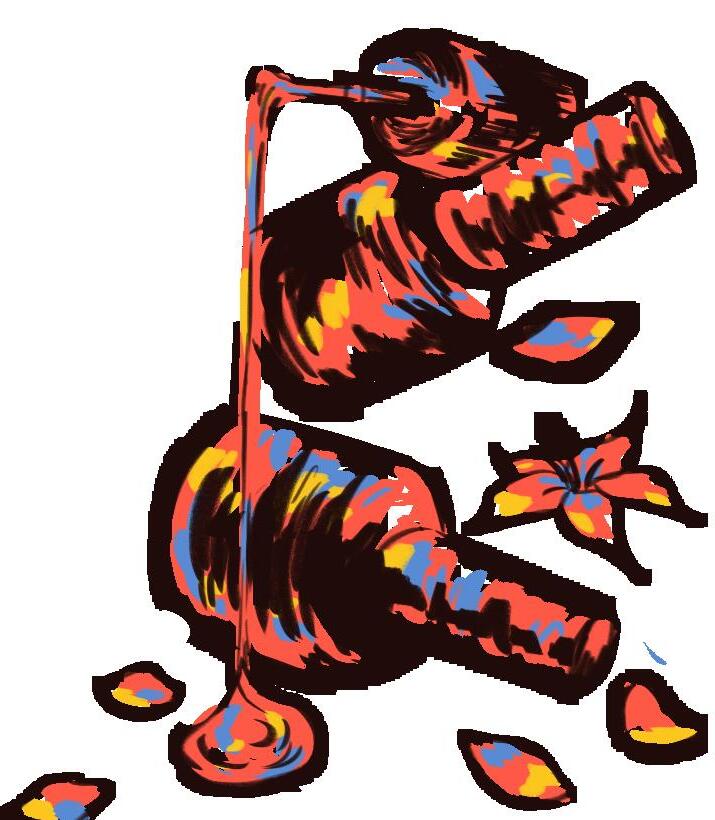

In the first story, we trace the effects of imprisonment and social stigma in Egypt, where state apparatuses and the collective imagination work to legalize hatred and strip citizenship of its meaning, transforming patriotism into a tool for control and compliance. The following story comes from Sudan, from the heart of the postrevolutionary reality, where tyranny is reproducing itself through multiple tools: military, civil, and cultural.
Despite the different contexts, the same scene is repeated: the queer body becomes an arena of political conflict, not only because it is different, but also because it threatens the familial-religiousnational order. In both cases, fleeing the homeland is not a denial of nationalism, but rather an expression of the failure of the national project to contain the diversity of its citizens and to ensure the minimum conditions of dignity.
We also note that bodily movement—from a neighborhood in Cairo or Omdurman to a camp, to exile, to borders, to an asylum request— are not isolated events, but rather material manifestations of the biopolitics of control employed by states to restrict the freedom of those they classify as "excess bodies" or "potential dangers." In these contexts, the right to movement becomes a battle for survival.
But amidst this battle, resistance is manifested in the smallest details: a decoration in a room, a nail polish, a laugh in the street, or a shared song memorized by bodies instead of minds. Here, the queer space— whether a room in Beirut or a communal apartment in exile—becomes a counterspace that reshapes notions of belonging, sovereignty, and desire. Queerness is not just an identity, but a political practice that dismantles the systems that define who one is.
From Egypt to Sudan, from Beirut to the Gulf, these stories accumulate in the body of the region, as a geography and as a living archive, revealing not only the structure of oppression, but also the genius of survival and the possible forms of resistance.
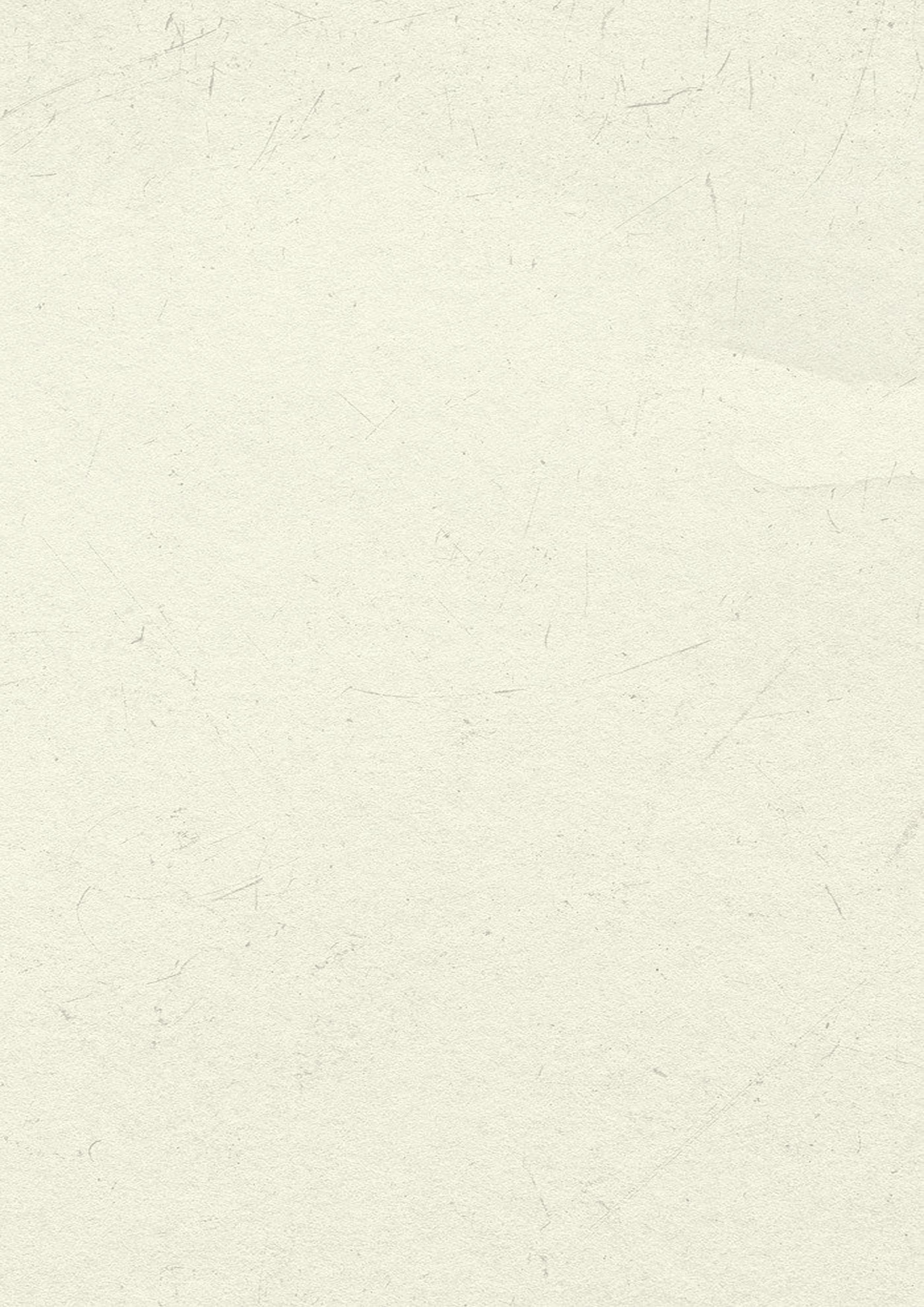



Chapter One: The Old World: When the mold doesn't fit you
It all starts within, with a quiet realization that you don't quite fit the mold set for you.
I'm not a very strong man and my hands were soft, so I experienced some bullying in the beginning in Sudan. In high school, the school was all boys, and before high school, I was harassed, and I think it was because I hung out with girls more than boys. They called me crooked or a "third wheel" (meaning that women are comfortable with the guy and talk to him because he's gay and therefore doesn't pose a "danger" or "threat" - I imagine). These nicknames continued intermittently until after I graduated from college, but they became more funny to me than annoying. Nothing else was directly done to me.
From this realization, a survival strategy arises.
Before leaving Sudan, I was working in civil society and I was just entering the Sudanese feminist and/or queer community, and this helped in building my awareness little by little.
My self-expression depended on the degree of danger I was exposed to. I was constantly testing boundaries, while at the same time not revealing specific information. For example, I would get a manicure and go about my business as usual. This was strange to my family, and my employer didn't have a specific policy prohibiting it. But I did't get into any conflicts with them. I did what was required and set clear boundaries for what I could discuss and what I couldn't personally interact with.
I understand that if someone has a problem with me, if I interact with them, they might assert certain things, and the accusations/loaded questions are a tactic to push me to interact and say things that can be used against me (whether in the form of discussion, advice, or just outright hatred). But if I don't confirm or deny anything, they won't have a way to bother me, and I'm not interested in explaining or defending myself to anyone - it's a waste of time, energy, and inner peace, especially if the other party doesn't care to understand.
It is not my responsibility to justify. My responsibility is living with dignity.
In this chapter, we encounter the first moment of the formation of a queer identity within a hostile social and legal context, where queerness appears not only as a departure from gender normativity, but as a political question directed at what is considered “normal” in a society governed by the logic of discipline, surveillance, and control of the body and behavior.
Walid does not begin by telling a traditional "coming out" story, but rather with a first moment of awareness that his body, his language, and his skin do not "fit" the pre- imposed mold. This mold is not merely a social expectation (man = roughness, deep voice, distance from femininity), but rather a disciplinary mold operating across institutions such as school, family, and neighborhood, employing linguistic tools such as "crooked" and "third wheel" as means of policing the boundaries between "normal" and "deviant".
This language is not innocent—it is part of a systemic stigmatization that practices symbolic violence daily, even when not accompanied by physical violence. From a social science perspective, these labels can be understood as a form of "interactional stigmatization," a mechanism that transforms difference into vulnerability and places the different under constant societal scrutiny.
But Walid, instead of retreating or direct confrontation, develops a response based on conscious caution: neither denial nor acknowledgment. Rather, he carefully demarcates what is to be said and what is to be left out, as if identity is exercised through "controlling visibility." This strategy is reminiscent of concepts such as "tactical transparency," where caution is a tool of resistance, not fear.


In this context, Walid does not "hide" his identity, but rather refuses to be drawn into the game of questions and answers, of condemnation and justification. He withdraws from the logic of forced confession, realizing that speaking out in unsafe societies is not heroic, but rather a risk. Queerness here is not merely an expression of self, but a conscious practice of survival and dignity in the face of a system that makes mere difference an accusation.
"It is not my responsibility to justify. My responsibility is living with dignity." This is not a casual phrase, but rather a small political statement in the face of the logic of societal conformity. It is a moment when moral philosophy intersects with daily practice, where survival itself becomes a political project.




Chapter Two: Weaving the Alternative: When We Make a
Place for Ourselves
When the outside world is unsafe, you build your own. It starts with language.
I didn't socialize with homophobic people, but anyway in Sudanese colloquial culture we use words without even meaning to be homophobic. For example, when a person does incomprehensible things or when people don't like someone, they call him a "crazy faggot."
With my friends, in our group, when we discovered that we are all queer and neurodivergent, "crazy faggots", we started calling our gatherings by these names. We created our own space within the community.
With the war, I discovered that survival happens on the level of community. Before that, I didn't feel supported because I wasn't the type to accept help. I worked on this and became more able to accept help from others. With the start of the war, there was a small amount of financial support from my extended family. After that, most of the support I received, which became moral, came from my friends, whether those from work or other friends. We were a group of eccentrics and outsiders.
In the heart of the group, rebellion is born as an act of joy in life.
We began our independence journey together, starting in Sudan. After our displacement, we moved together. I remember we even started renting large apartments, sometimes entire floors, and living together. The system continues to this day. We created our own community wherever we landed: the crazy faggots.
We found an alternative family in each other. Once, on my birthday, we were sitting in a garden, enjoying alcohol. It was a rebellious act, and we were violating our community's honor. At midnight, my friends spontaneously started talking about me and their memories with me. When I saw myself through their eyes, I felt like I belonged.
Once again, we sit at three in the morning, drunk, staggering in the street, sometimes reciting poetry and other times dancing. There is something special about a comfortable existence that invites the presence of the spirit and reminds us of the taste of creative chaos - the same innate spirit that we came to this world with, and we forget it in the midst of oppression. "Rebellion" is a tool we use to create this existence despite the oppression, in order to end it for us and for everyone. I feel that all my memories in Sudan are memories of acts of rebellion. My entire journey was a rebellion, a rebellion tied to a sense of hope, seeing a possible future and that we can build something that makes everyone comfortable.
In this chapter, we move from individual survival strategies to a collective practice that reimagines the world through different language, relationships, and spaces. We see not only responses to violence, but also active attempts to forge an alternative reality, founded on love, laughter, and companionship. Here, the contours of what José Esteban Muñoz calls the queer political imagination clearly



Imagination here is not an escape, but a practice that transforms the “queer moment” into a temporal-affective space that resists the harshness of the present. The common room, the improvised poetry, the dancing in the street—they are not marginal details, but spaces for creating an alternative world within the world.
Walid is not merely seeking to survive war or patriarchy; he is working to build a “micro queer community” that redefines concepts like family, belonging, and support.
Through the intimacy of friends, a temporary but real utopia is achieved—a place where tenderness is redistributed and a new, resistant, and resilient self is forged.
The political imagination here does not emerge from academia, but from wounds, from the desire for a life worth living. Which makes the story, and these collective moments in particular, an archive of survival—but also, the seed of a different future.
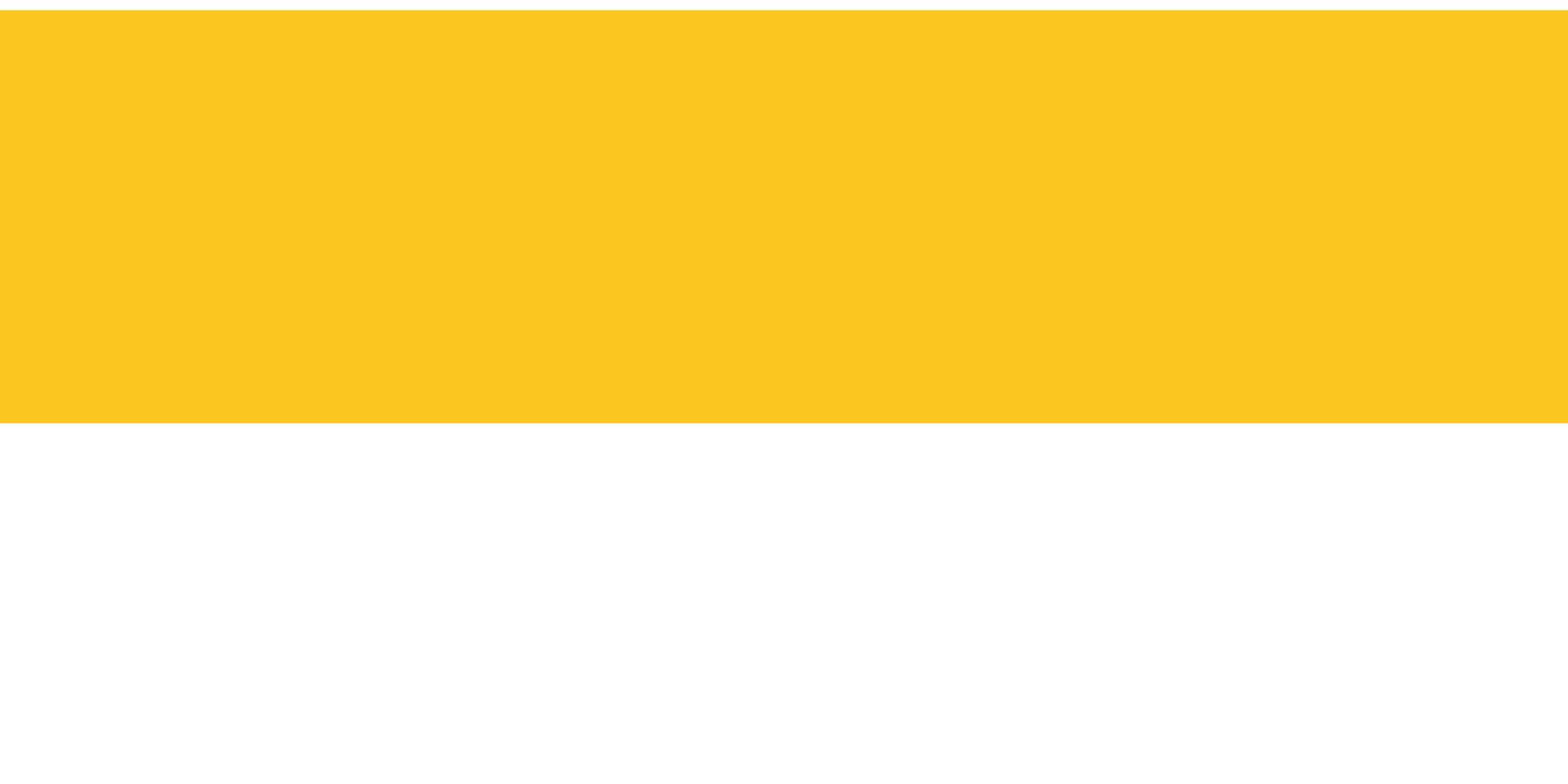
Chapter Three: The Fall of the Old World: When Violence Gets
the Better of You
Then comes the reality of violence that above everything.
I never planned to leave Sudan, and that's why I yearn for the memories with my comrades in the revolution, the attempts at struggle, the discovery of the self and others, and the feeling that we are all together despite the experiences of rejection, expulsion, and the feeling that we are rejected.
In Sudan, I had several houses: the family house and the house I lived in. I didn't stay in the second house for long. After barely a year, the war started, and I was planning to bring the bass guitar there, but the violence got the better of me.
My feelings of displacement were initially repressed. Denial and intense pressure, for which I had no feelings or space. And I remained that way until I reached the first stop on my journey: Egypt. When I reached the Egyptian border, I began to feel. I felt fear and repeated humiliation. In Egypt, I felt existential danger due to the Egyptian security, then I felt alienated, so I went to the Gulf, and there I was forced to stay with another part of my family. I found work opportunities (sort of), and the financial return wasn’t little, that kind of obscene wealth - but all these things made me feel like I would lose my soul (jobs that reproduce violence and protect the interests of a class, oil and gold trading, etc.). This reminded me of all the concessions about my being that I was making in this environment. At the same time, it is an Arab country with its own culture of what is acceptable and unacceptable. I felt uncomfortable andlike I’m not being myself, so I traveled again.
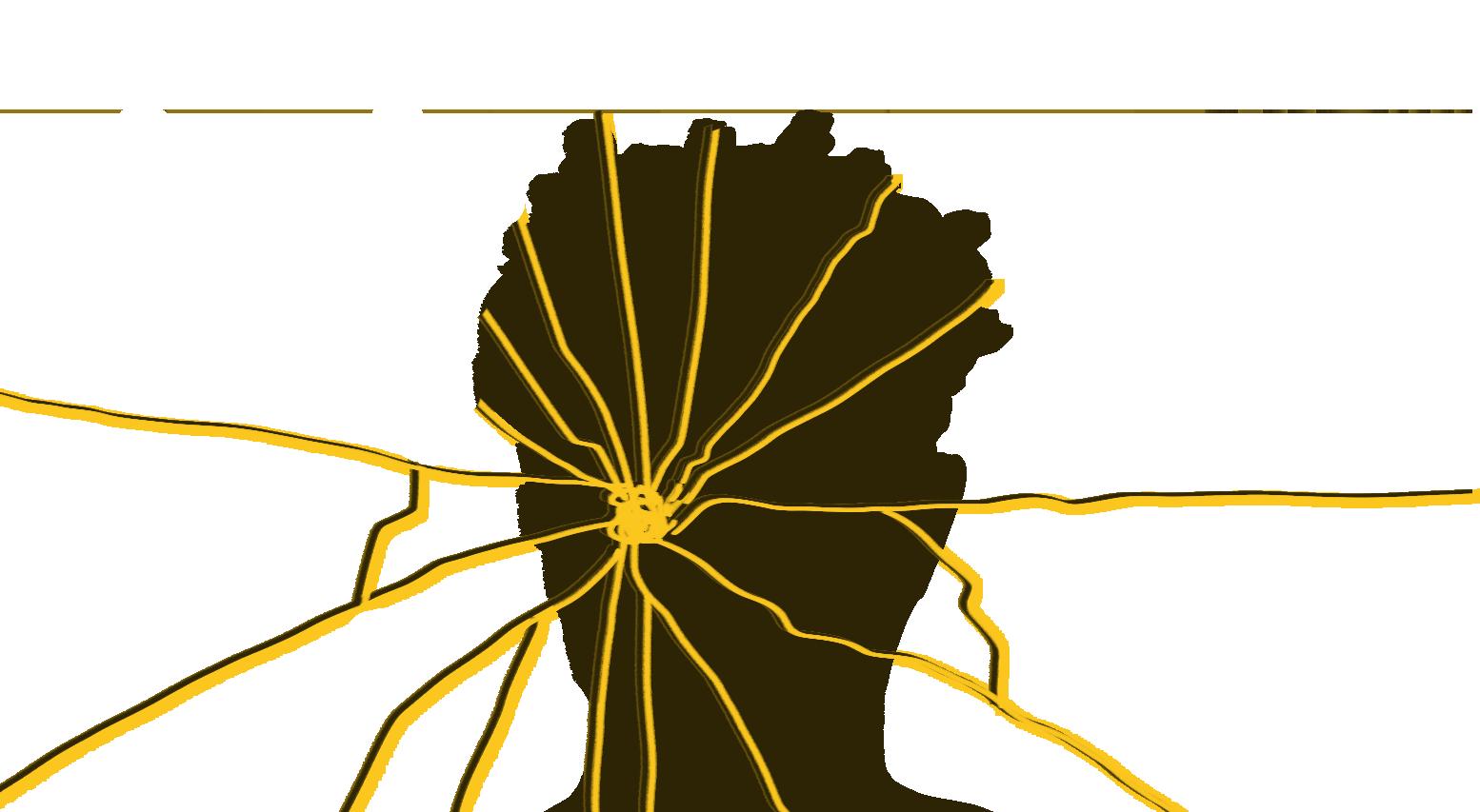

In this chapter, displacement is not narrated as a decision, but rather as a political fate imposed by the machinery of violence before the self is given a chance to reflect or choose. Walid does not "migrate," but is forced to secede from the context that shaped his political, emotional, and collective consciousness—a revolutionary context in which he was part of a group trying to cultivate a different homeland.
This stage begins with the loss of place. Not only home in its material sense, but home as a space for a deferred dream. Walid expresses his simple desire: to bring a bass guitar—a metaphor for stability and selfclinging—but violence "gets the better out of" him, attacking his life plan before it is complete. Here, the paradox of the postcolonial state becomes apparent: a state that failed to protect its citizens or guarantee even the bare minimum of living, but instead produced war and then proceeded to persecute those who survived it. Walid's journey from Sudan to Egypt, then the Gulf, expresses not only a geographical movement but also an intense experience of crossing through layers of oppression.
In Egypt, the specter of "security" returns—not as a mere apparatus, but as a representation of the Arab security doctrine that views the queer body as a threat to national discipline. In the Gulf, Walid finds himself in the midst of a distorted class of wealth, based on oil and rentier capitalism, where work is transformed into a performance of "anti-being," and new forms of oppression are exercised through "consent," not direct coercion. Here, physical violence (war, intelligence, expulsion) intersects with symbolic and structural violence (labor that consumes meaning, cultural alienation, self-sacrifice for survival).


These levels of violence demonstrate how exile is not only a physical state, but a complex emotional structure formed by silence, denial, and the oscillation between survival and erasure.
Walid not only narrates the stations of departure, but also offers a political dissection of the geography of the post-Arab revolutions: from revolution to war, from comrades to borders, from a dream of belonging to a reality of loss.
In between, we discover how regimes, regardless of their different structures (civil, military, rentier), unite in practicing the symbolic expulsion of the queer as someone who has no place. Thus, the fall here is not only the fall of a house or a homeland, but the fall of an existential project.
But amidst this rubble, the self continues to resist, through migration, through silent refusal, and through the decision to leave again—not as a mere escape, but as a belated recovery of agency.





Chapter Four: Unpromised Land: When Survival Becomes
an Act of Resistance
Reaching Instability
I never felt settled in any house. Recently, I was able to rent with people I was comfortable with for the next year, and I feel that this is the house and place where I can settle for a while. Before I came to the country I am in, I had no expectations, and adapting was extremely difficult. I came here after doing some research and found that the country is queer-friendly, with a high level of sex positivity. Being gay is't legal here either, but there's no interference in people's personal lives, and no restrictions on non stereotypical public appearances. This tells me how safe the country is in

In this desolate land, harsh realities of survival arise.
I don't trust governments, and I don't like the way refugees are treated. If they treat me well now, things might change in a year or two, so I won't put myself at their mercy. In the country I'm currently in, I haven't asked for any services, nor have they offered me any. If I were to seek asylum now, they'd take me to a camp, and I don't want to go through the asylum process because I have so many things I want to do that I'd lose the ability to do. It's illogical that my freedom of movement and my ability to work to support myself would be diminished just by asking for help. Why should the cost be my basic dignity in determining my fate? I paid for psychotherapy without insurance or support, and I am satisfied with it and it helped me in my life even though it is expensive.I know part of this is social anxiety. I convince myself that I don’t need to go out, so there's no reason. Part of it is fear, which comes from the experience of displacement. It prevents me from going out and interacting with the street, but it stillmakes me think carefully. At the same time, I don't socialize much with people. I'mnot very social, whether here or in Sudan, so it doesn't matter to me.


In this chapter, exile appears not as a means of survival, but as a permanent state of political suspension: a place that promises nothing, yet demands everything. There is no 'promised' land here, but a fragile reality that requires a daily reinvention of the meaning of survival. From the outset, Walid deals with the paradox of stability: he has finally arrived in a place where he feels a sense of security, but he realizes that this security is temporary, conditional, and could be taken away at any moment.
This realization is not only personal but profoundly political. A state that does not guarantee legal protection and links your survival to asylum procedures that deny you freedom of movement and work reproduces a new type of conditional citizenship—a citizenship of 'exception,' as Agamben put it, where your legal presence is temporary and can be terminated at any time. Walid's desire to avoid entering the asylum system reveals a loss of trust in the state as a source of protection, a loss stemming from the accumulation of previous experiences with repressive regimes, where the state was a source of danger rather than protection.
Here, self-reliance, no matter how costly (such as paying for psychotherapy without support), becomes a conscious act of upholding individual dignity and sovereignty.
Dignity is not granted, but rather extracted by avoiding relinquishing personal decision-making in the most minute details of life. From a social science perspective, this chapter reflects a structural critique of the Western asylum system, which, despite its "humanitarian" slogans, imposes layers of exclusion and bureaucratic obstacles on "migrant bodies," especially queer ones. While certain countries are promoted as "queer-friendly," their legal structures still confine refugees to a position of dependency and subordination.

The experience also intersects with concepts of affective capitalism, where mental health becomes a commodity, in which a minimum of internal balance can be purchased, in the absence of any social or collective support.
Under this system, survival becomes an act of resistance—resistance to isolation, to bureaucracy, and to discourses that demand that the survivor be grateful, appreciative, and obedient. Yet, a particular form of sovereignty is evident: Walid's refusal to be defined by the standards of the state or society.
His lack of interaction is not a passive withdrawal, but rather a stance that expresses a profound awareness of his needs and limits. He doesn't ask the state for more than it can grant, but he also refuses to trade his freedom for conditional protection. Here, everyday survival becomes a quiet political tactic, unannounced but consolidating an unyielding existence.


Chapter Five: The Newborn World: When Freedom Becomes
Possible
After finding a fragile external security, the work of building an internal fortress becomes an urgent necessity.
What exactly my identity is doesn't matter - the search itself is the meaning. Clothing and ways of expression change from moment to moment depending on the mood. I was aware of this. I knew there was a way of being that worked for me, whether in terms of expression, attraction, or interaction. My concern wasn't discovering my identity specifically. The essential discovery is the awareness of queer liberated spaces, and that freedom and safety are the cornerstones of these spaces anyway, and that they are more comfortable for me and the way I want to live.
I have been inspired by experiences of love and friendship. They are never separate from vulnerability and exposure, where you trust the other person and that they will understand you and all aspects of your personality. This is my understanding of love: revealing myself and getting rid of the illusion that we are not enough on our own, and getting rid of the artificial performance to please the other party, whoever feels this. If there are things we need to work on internally, we know where they are coming from, and if there is something in the other person that does this as well and works on it, this practice reduces anxiety.
When I am anxious, I start talking to the other person even if the reasons are not completely clear to me, especially before we engage in any sexual experience. This creates a culture of trust, and therefore, creates a culture of ethical consent. Because the experience is free of any sense of danger or artificiality, we are confident that we are comfortable in the experience and enjoy it, whether through touch or words. The most wonderful experiences I have had have come after doing this practice.
In addition, I don't see any major differences between us, and I believe that there is no difference in the human experience as a whole, and that all people are somewhat queer (meaning they are not completely in line with the dominant culture), but there are simply people who are not comfortable with themselves, or it is easier for them to live with oppression, and this is understandable.
I believe in revolution in all its details, because all these feelings exist in an abstract form even before they have names to express them. However, they can manifest in other forms and words, and if they don't manifest, it's because they don't have a language or heritage related to lived reality. So, it's our duty to give them names. It’s similar to colors: the Russian language is one of the languages that has many names for different spectrums, and so Russian speakers can notice colors more than us and describe them simply because the word is present in the mind.
I started new hobbies like the bass guitar. I tried many instruments before the bass guitar, but I didn’t enjoy them. The idea of the bass guitar was nestled in my mind, but it needed a lot of money and stability because it requires a lot of equipment. I sat with myself before buying it: I said if I buy it and put it away, I will be very upset.



For example, I learned the language of the bass guitar, so I can read the song from a different perspective. The listener (non-player) can still understand it, but they won't hear the same thing. Culture may make us notice and pay attention to things, so delving into defining the meaning of freedom - whether individual or collective, philosophical or practical - is a fundamental right for every person in the world. Because it's sad to see people who have something to offer themselves, their community, and the host community, and despite that, they sit for years between a camp and procedures that are deliberately designed not to end, even though they have the desire and ability to produce something that could benefit the world. The most important thing is freedom,
the freedom to move from anywhere to anywhere and to be equal to anyone living in the country in terms of rights and opportunities. I believe that culture unites more than it divides. You have the right to move in all societies and among all groups without erasing their culture or yours. The outward journey is a reflection of the inner journey: the constant pursuit of knowledge and growth.
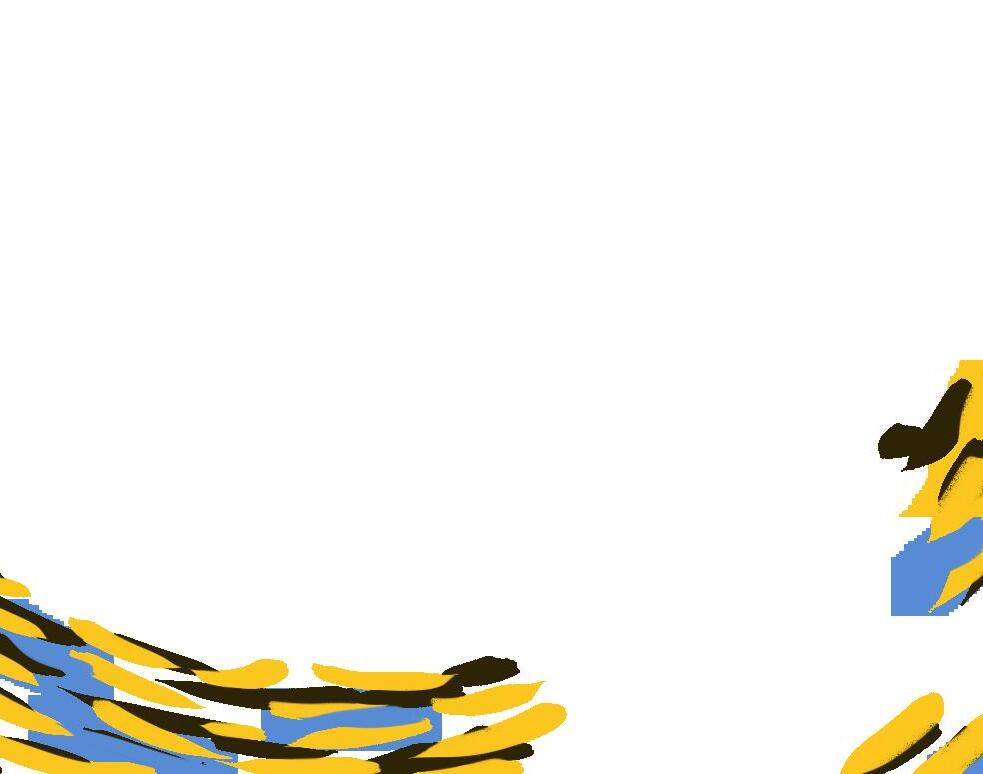



Because what is happening in Sudan now is not isolated from personal, local and global history, and if we do not solve it radically, we will continue to reproduce the same play with adifferent title. I believe that it’s too much and it’s more than enough now. It is time for something new.
Here I started to benefit from external reading and science because I didn’t start with them. I started with personal experience and now my goal is research and knowledge. I was convinced from the beginning that all experiences involve choice and I am supposed to learn a lesson from them. I mean it is very easy to go back to my unhealthy lifestyle, but every time there is displacement, war or an experience, I choose to change the lifestyle because this makes me healthier and reinforces my belief that I can survive if the worst circumstances happen and not just survive, but thrive.
In this chapter, we move from the question of survival to the question of thriving: How do we construct the self when we emerge (even temporarily) from the circle of danger? How do we reshape our lives, not only as a reaction to oppression, but as active and creative agents? Here, queerness is understood not as a ready-made identity or fixed location, but as an open space for reconfiguration, where selfexpression, daily practices, and knowledge become tools of liberation in and of themselves. Walid does not propose a definitive definition of his identity.
Rather, he rejects fixed categorical structures and calls for replacing the question "Who am I" with the question "How do I live?"—a conceptual shift that intersects with the radical queer vision that views identity not as an essence, but as a living and transforming practice.


This kind of thinking transcends the binary of identity/non-identity, or normal/deviant, to establish a more expansive understanding of human existence. At the heart of this vision lies the queer political imagination.
This imagination does not merely mean envisioning a more just world; it is also the ability to practice daily life beyond the inherited molds of the state, family, religion, and neoliberalism. Love, music, writing, and relationships based on consent and understanding all become political acts—not in their partisan sense, but as choices that resist what is imposed as "normal."
Walid cleverly connects subjective experience with theoretical knowledge. He begins with the body, with fragility, with negation, and then returns to construct a cognitive model from below, not from above. He begins not with ready- made theories but with experience, then returns to deconstruct what does not work and reconfigure what needs to be rooted locally.
This movement is reminiscent of what Gayatri Spivak called "the production of situated knowledge"—that is, knowledge that emerges from context, not is imposed upon it. Language and music in this chapter are not merely tools of expression, but languages of life.
Talking about learning the bass guitar and transforming playing it into a source of personal joy, far removed from the logic of productivity and professionalism, reflects a rebellion against the neoliberal model that turns every talent into a commodity and every activity into a profession. This rejection does not stem from laziness, but rather from a conscious desire to preserve joy as a political value.
Conversely, the critique of the global order, civil institutions, and the ruling classes in Sudan expands the scope of the queer vision from the private to the public, from the body to the state.
Walid does not separate sexuality from politics, but rather sees colonialism, militarism, capitalism, and Western cultural hegemony as structures that intersect with gender and sexual oppression and reproduce it at every level. Here, queerness becomes a radical liberation project, not merely reformist or identity-based. In short, this chapter is the announcement of a birth.
Not a birth from the womb of defeat, but from a profound epistemological and philosophical question: How do we live, think, and produce a theory that stems from our reality? The “new world” is not just a place, but a way of being, a form of life, and a new language of survival—a survival that transcends staying alive to thriving.
In the following story, we turn to Nofal, who comes from Libya. His voice not only reminds us of the common thread with Mohamed and Walid, but expands it to reveal another aspect of oppression: when control comes not only from the state, but from transnational networks of interests.
In the cases of Sudan and Libya, the circumstances are similar: the disintegration of central structures, the generalization of violence as a tool of governance in the absence of civil structures to protect the most vulnerable, and the transformation of queer bodies into easy targets in larger battles—battles driven by regional and international hands that claim to support “stability” while reproducing control in new forms.



While Walid experiences oppression resulting from an alliance between the army, militias, and the legitimacy of the hijacked revolution, Nofal is pursued between front lines controlled by armed groups and foreign states vying for Libya as a strategic geography. In both cases, "nationalism" ceases to be a comprehensive project, but rather transforms into a dangerous lie, in whose name nonconforming bodies are killed, revolutions are hijacked, and demands for change are transformed into arenas of geopolitical conflict. Here, local oppression clashes with imperial power, and the queer body becomes a site where these wars are waged invisibly.
Just as Mohamed in Egypt questioned the meaning of citizenship when the state is the executioner, and just as Walid in Sudan experienced how tyranny reproduces itself after the revolution, Nofal in Libya is forced to coexist with shifting forms of violence, the source of which is difficult to even determine.
Despite the differences in experiences, the political connection between them is clear: the same region has become a testing ground for neoliberal, security, and military control equations, where marginalized bodies—such as the queer body—become early indicators of the failure of these projects and sites of stubborn resistance against them.
In these three stories, we do not merely observe individual suffering, but rather read the features of a failed Arab project to ensure a dignified life for its citizens, especially those who stand on the margins of the "normal," the "national," and the "acceptable."
Between state repression, the disintegration of authority, and the complicity of imperialism, the experience of displacement and the dispossession of rights is repeated. But in the face of this, we see queerness not only as an identity, but as a political and aesthetic practice that reimagines what homeland, security, and belonging can be—beyond the chains of obedience and outside the conditions of the regime.
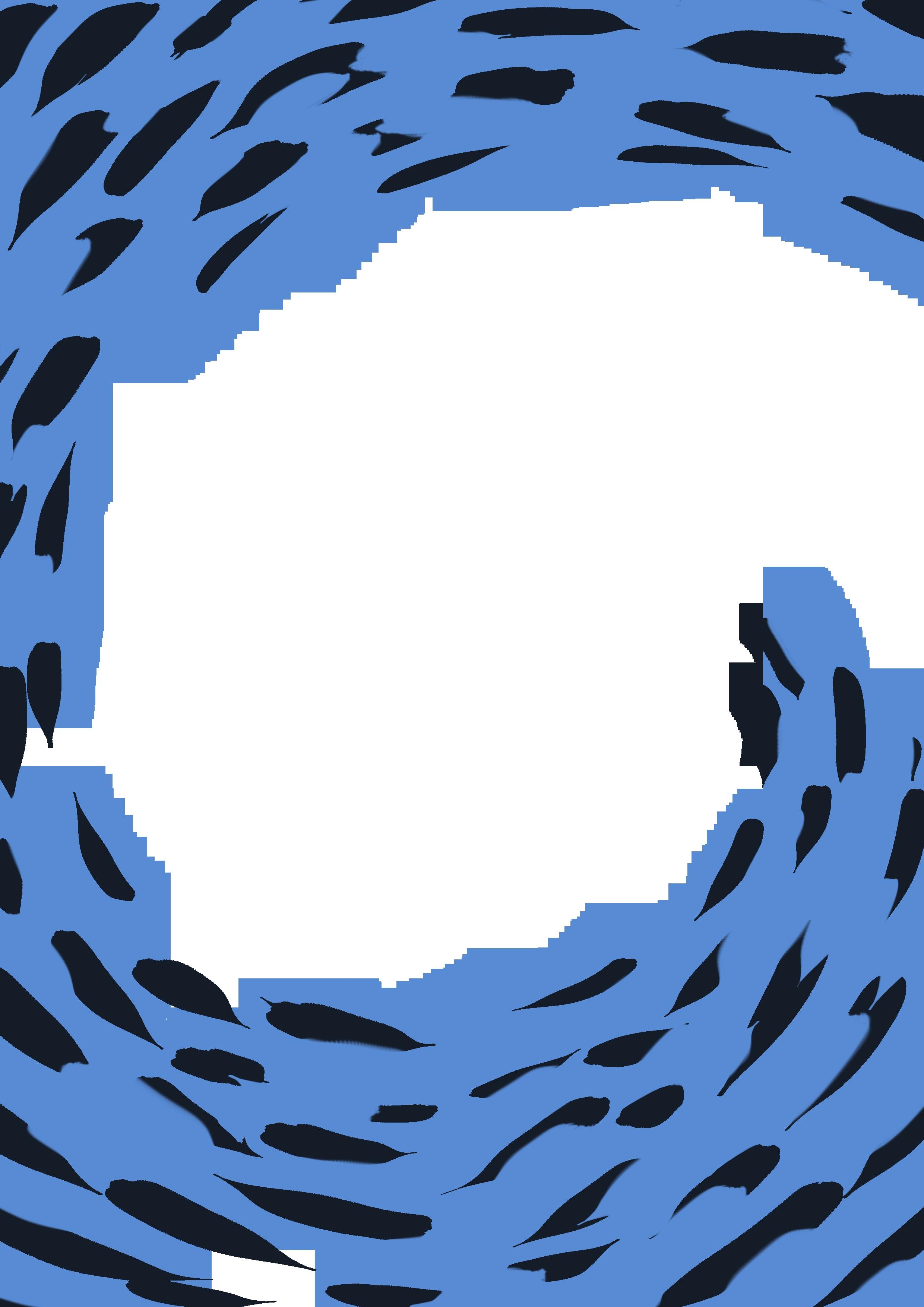

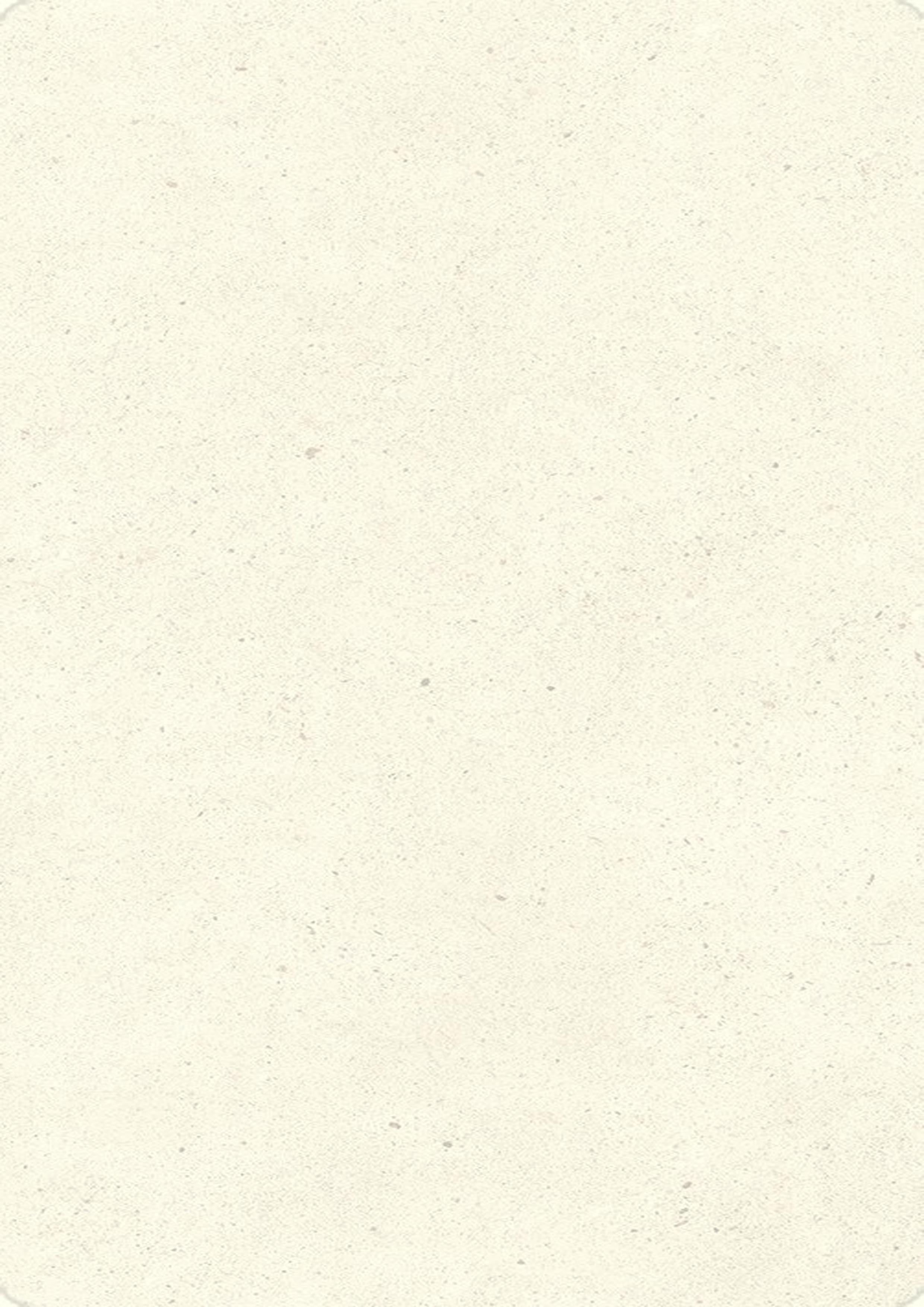
Chapter One: A House That Doesn't Ask - When Difference
Is Hidden by Silence
I lived in Libya, in an area on the outskirts of Tripoli called Al-Najila. I's a low- income area, with only apartment buildings and flats, not houses. Apartment buildings in Libya are either for the poor or for those with low incomes. I lived in a single-parent family, whose marriage was failing, and there was a lot of violence. There were three of us, my siblings; I was the middle one. I went to an elementary school called Hay Al-Mujahid. It didn't even have teaching materials; it was like a prison. My middle school was also in Hay Al-Mujahid, and I spent a year in high school in the same area. I had some friends, both male and female, at school, and they always called me flirtatious because I had befriended girls, even though I had no sexual awareness.
I remember one time, when I was five years old, I was watching a Disney movie, and a girl was talking about the boy of her dreams -Disney movies are immoral and do not care about consent.
I mean, if a woman is sleeping and someone comes and gives her the “kiss of life” - that is assault. So, in these movies, I once saw one, and I went to my dad and said, “I want to tell you about the boy of my dreams.” He looked at me and said, "A boy shouldn’t have one. It’s only for girls."
I wondered why a man would want to be with a woman. After that, the wave of Turkish series came and I wasn’t aware of the different sexual orientations. I said “strange.” Once I watched a series called “Asi and Amir.” I was always surprised that Assi, the woman, was with Amir, and I would tell them, “I am surprised that a woman and a man are together.” They would find this strange, but there was no violent reaction.
Then I discovered, when I hacked my mother’s Facebook account, that my dad wrote to Mama that he knew that Nofal was gay since he was five years old, and Mama told him, “No, he was, but now he isn’t.” She said this because she knew that there was flirting between me and someone in high school, and she thought that since the flirting ended, homosexuality ended.

We were close to my mom's extended family, and we saw them on a daily basis. We didn't have a close relationship with my dad's family, we didn't even know their names, but we used to meet during Islamic holidays. I lived in a very violent family, even by Arab standards for upbringing. I faced physical and verbal violence. I lived in a place where we could get beaten up on a daily basis, and we could even get beaten up in public places. I remember one time we were sitting in a public place, and there was a Libyan singer, and my mom told me to go shake hands, and I told her, "No, mom, I don't want to do this."
She began slapping me on the face. I was raised with the most vile mother and father, and despite that, my mom had no problem with homosexuality, and even though her family had a problem with me posting pictures, my mom, despite her vileness, defended me. The thing I want to point out is that the violence was against me and my siblings, especially my older brother. I always knew that I was attracted to men. I don’t remember a moment in my consciousness when I wasn’t attracted to men. But I always saw men marrying women, so I concluded that men love men, but they marry women to have children.
The first love story in my life was at the age of eight. I was with a guy named Muhaimin. He was handsome and kind, and a few months younger than me. There was an attraction and affection between us. I mean, we used to sit together, and I would always wait for him at night, in the yard, in an area between buildings. It was supposed to be a playground but it had nothing to play with. I would wait for him to come to me at night, and he would do. I would put my hands on him and he would put his hands on me, and we would sit in silence. We wouldn’t touch our private parts or anything, but… that touch was sexy. I am an Arab Libyan, and he is an Amazigh, and these two ethnicities were not on good terms with each other. They do not marry each other. I find it strange that my first relationship was rebellious. Only now do I understand.
As a child, I didn’t know what to call these experiences. When I was about 12 years old, I found a definition of the word homosexuality. I had found the word on the internet, and I felt like the word or its meaning was relevant to me. The funny thing is, my little brother told me, “As soon as I heard the word gay in English, I said, ‘This is my friend.’” Of course, he didn’t have any problem with it.

I was praying once and I said, “Oh God, if this is something bad, take it from me, and if it is something good, keep it.” God kept it, and I am grateful for God’s decision. If I had to choose, I would choose to be gay, because I am grateful for my homosexuality.
Once I saw a psychology book that had an entry about homosexuality, four or five lines long, and it said that homosexuality is genetic. I said okay, then I looked it up on YouTube in Arabic and they were all sheikhs saying that every gay man wants to fuck children. And I got similar things from some Christian sources as well.
I didn't get any scientific sources, only religious sources. The religious perspective is funny and can be easily refuted because it didn't talk about homosexuality at all, it talked about raping men, and because society has a violent tendency, they didn't differentiate between rape and consensual relationships, and linked it to consensual relationships, between men and women, and this reflects them, as if there is no difference between the types of sexual relationships, and this is in the three Abrahamic religions.
In this chapter, the concept of childhood is reshaped from an "innocent" or"neutral" stage to an arena for the early struggle between body and knowledge, between desire and violence, between selfawareness and power. Nofal does not begin with a moment of "comingout" or revelation, but rather from a deep, childlike, yet not naive, bodily awareness. This awareness is not shaped first by words, but by touch, by a glance, by the space between two bodies in a residential yard unfit for play, but which created the first love story.
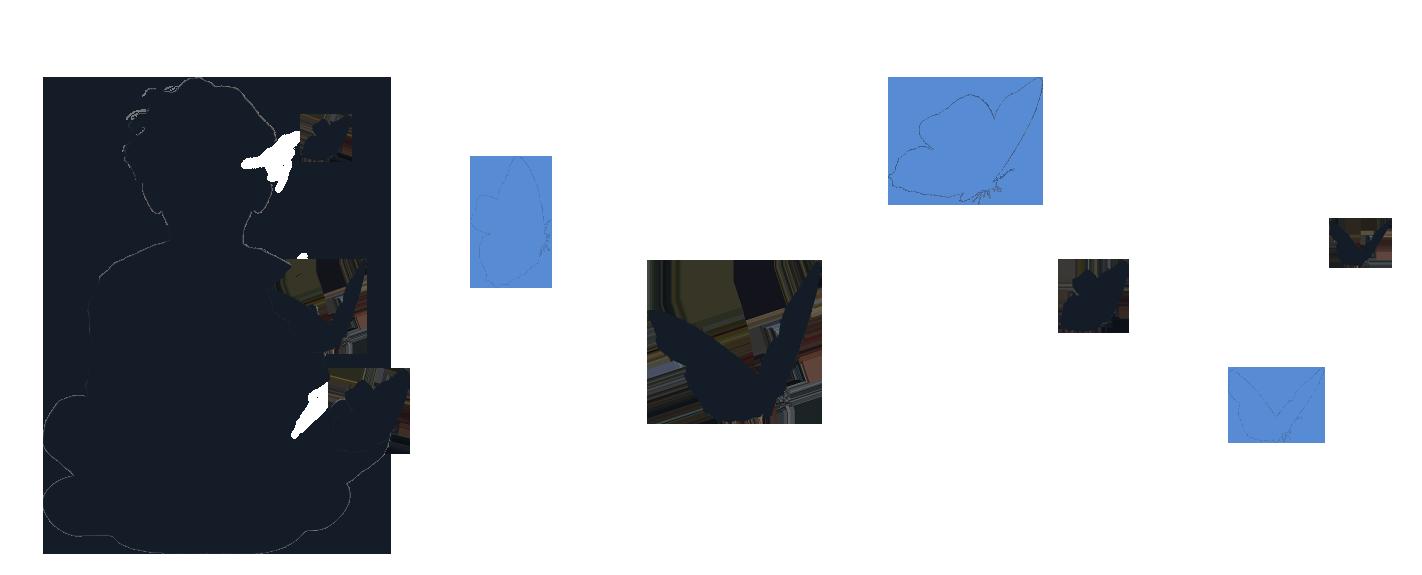

This text not only tells of the discovery of sexual orientations, but also reveals the multiple structures of oppression that shape our consciousness from childhood: the family as a system of violence, the school as a prison, the father as a symbol of worn-out male authority, the state as silence, and society as a reductive system that only understands what it already knows.
At the heart of all this, the child Nofal continues to search for a voice, a word that resembles him, a moment to whisper, "I want to tell you about the boy of my dreams"—a sentence that upends the gender system at its roots.
This chapter reconstructs sexual identity as an internal movement, one that does not come from outside or from a preconceived notion. Here, awareness does not stem from the "gay community" or Western culture, but from experience: from the hand placed on the hand, from waiting for the beloved under the nightlight, from asking what it means for a man to love a man in a society that doesn't even have the vocabulary to talk about it.
Every moment here is a queer lesson in self-formation, in rejecting binaries, in playing with the boundaries of meaning.
The analysis extends to reveal how categories are imposed on children even before they can speak, and how the family—even if it is ostensibly "defending" them—adopts discourses of negation and reduction: "He was, but now he isn't," the mother says, as if identity were a fleeting moment or a curable illness. But she also, despite her violence, protected him—a complex scene that reflects how violence and love, protection and cruelty, can coexist within the same bodies and institutions.
This coexistence is the essence of the queer experience in Arab contexts: neither innocence nor absolute evil, but rather intertwined, intricate interactions that are difficult to disentangle.

The text also turns into an early critique of religious discourse, as Nofal reads sources that speak of "deviance" as a threat or a deviation, yet rejects this framing from within. His prayer to God is transparent: "Oh God, if this is something bad, take it from me, and if it is something good, keep it."—a moment of equality between faith and self, exposing the authority of jurists and returning religion to the arena of individual experience.
Religion is not rejected, but rather reclaimed, far from its oppressive patriarchal institutions.
Finally, this chapter reveals what might be called the "political birth of the queer child": Nofal not only narrates a personal story, but establishes a counter-consciousness that rejects its class, gender, and ethnic classifications.
The relationship between him as a Libyan Arab and the Amazigh child is not just a love story, but a rebellion against the structures of internal colonialism and ethnic and gender divisions. This chapter, then, is not only a recovery of childhood, but a deconstruction of it, and its reconstruction in a language that resists forgetting and affirms that identity is not what you are told you are, but what you know—with your body, your silence, your waiting, and your love—that you are, even if you have not yet found a name for it.


Chapter Two: Spaces Without Names - The Body in the
Face of the Unknown
I was aware of something emotionally, which is that my mental health was bad and I was thinking about suicide. It was an environment with unbearable violence and I was a minor and I knew that if a minor died, he would go to heaven. I had a desire to kill myself and go to heaven if I committed suicide. What deterred me was my sacred body. I couldn’t hurt it. I mean if I threw my soul from the balcony and my body was disfigured, I swear it would hurt me. I love myself and my body so much, but I had a desire to go and get psychological treatment, and I had to take care of it as soon as I had the chance.
I was aware that I hated the place I lived in. I hated Libya because it robbed me of my childhood and didn’t provide me with any means of comfort. I realized that I would leave and never return. I had some awareness of my Islamic religious identity. My father is probably an atheist and my mother is Muslim but doesn’t even know the Fatiha.
When I was sad, I would pray, but I never went to the mosque. I used to fast in Ramadan. I liked this spiritual atmosphere. As for my sexual identity, I knew I wasn’t attracted to women and that it’s impossible for me to lead a heterosexual life because I see the institution of marriage as immoral, but this did not upset me. I was glad I wasn't following in the footsteps of others. I have always been self- loving, and nothing helped me in my childhood except my self-love.
I do not know where I got that from. I was aware of my sexual orientation and my gender identity as a man, but I did not have an awareness of my skin color and its political dimensions.
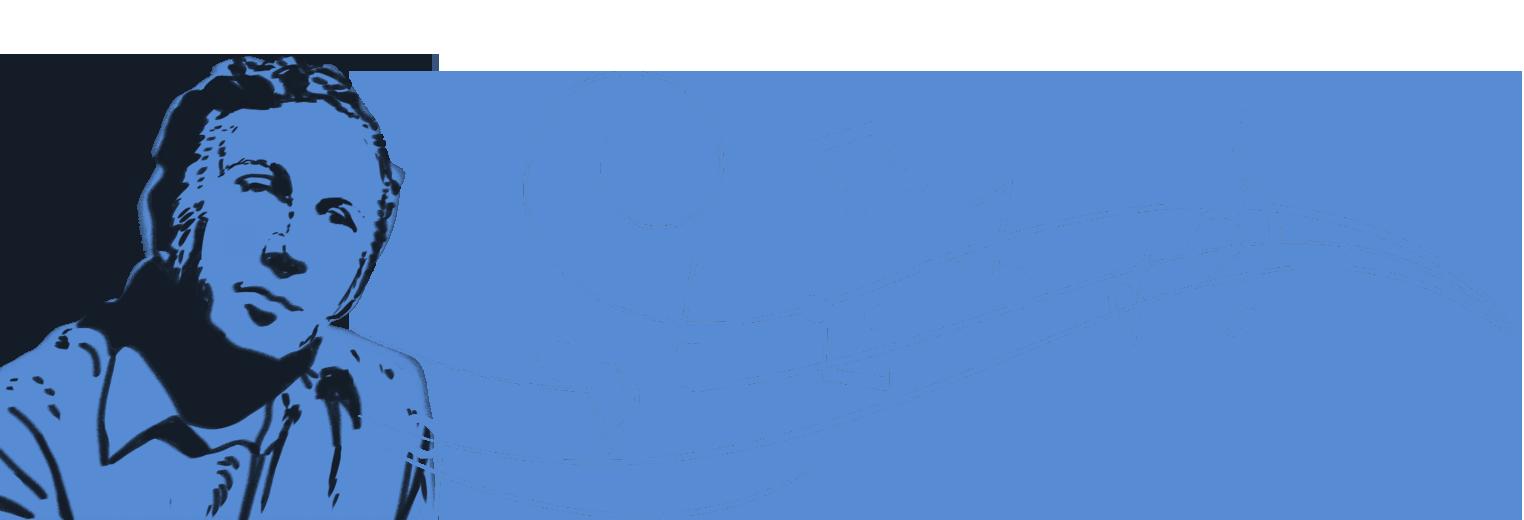


Regarding the violence in Libya, there were things that made life easier for me, like Arabic songs. I used to love Elissa and Tamer Hosny so much, and my older brother, when he wanted to annoy me, would ask me who I loved the most. And I would get annoyed because I couldn't answer! I also loved the poetry of Nizar Qabbani, and I loved the love in his poems.
It was noble and it always ended in love. Sometimes he chose to end it to preserve the love, and I felt something like myself in his poems, and I understood them as poems between two men. They weren't very beneficial because the violence was great. I mean, maybe it made me breathe for less than a second, but my mental health didn't benefit greatly, but it affected my conscience.
This chapter illuminates a pivotal moment in Nofal's life: awareness of fragility, and surviving severe cruelty, not through protection, but through early self-love. It is a rare testament to what can be born within violence, not despite it, but from within it—a kind of resistance that doesn't take a loud or political form, but rather begins at its weakest point: not to harm your body, because you love it, even if you want to leave it. Death here is not an end but a possibility of salvation. The idea of suicide is linked to a childhood belief: "If a minor dies, he goes to heaven," but it is not practiced because it collides with the wall of love for the body, "my sacred body."
This is not only a spiritual moment, but a profound queer stance in rejecting the culture of self-hatred. The body that has been beaten and humiliated becomes an object of love, not rejection. This is a radical reversal of the Arab queer's relationship with their body, especially in the context of familial, religious, and societal violence.
Religion in this chapter comes not as an identity, but as a conscience— individual prayer, not communal, fasting for the soul, not Sharia, an atheist father, a religiously ignorant mother.


Yet the child finds in Islam a space for tranquility, not institutionalized faith. This reflects an "emotional" approach to religious identity, one that stands outside the dichotomy of belief and disbelief and addresses the question of comfort, not dogma. In contrast to the environment that "robbed him of his childhood," as he says, self-love is formed as a force for survival. Not narcissistic love, but love as a form of protection.
Amidst this, homosexuality is redefined not as a crisis or a problem, but as a clear personal path: "I knew I wasn't attracted to women," and "I was glad I wasn't following in the footsteps of others." Heterogeneity is not an option, as it is part of a rejected value system: "I see the institution of marriage as immoral." Here, gender and sexual identity move beyond the logic of "acceptance" or "recognition" and into an intellectual, existential, and moral logic.
The text also highlights elements of "emotional breathing": songs, poetry, and fleeting emotional moments. Although they don't completely save the soul, they do open small gaps in the wall. Singing with Elissa and Tamer Hosny, childish anger at his brother's question, and reading Nizar Qabbani's poems as love between two men—these are all moments of "feminization" of the hard world, fragile but important moments that build within Nofal an inner sense of beauty, deviation, and the right to love. Finally, Nofal acknowledges the limits of his consciousness: he was not yet aware of the political dimension of his skin color.
This honest admission paves the way for a future stage of formation—a stage in which race, color, and colonial identity will become new elements in his self-awareness. This is a chapter on physical, spiritual, sexual, and artistic consciousness—on survival without protection, on resistance through love, on the first seeds of queer theory in the soil of



Chapter Three: Temporary Homeland - Canada as a Fragile Refuge
The revolution in Libya took place when I was 14 years old, and my parents were divorced when I was 12. My mom wanted to go to Tunisia for two weeks and then return to Libya. She discovered she had breast cancer and had a visa to Canada, so we came to Canada. We stayed there for a year. My mom got treatment and we returned to Libya. In Libya after the revolution, there was immense corruption, and there were written discriminatory laws that weren't enforced during Gaddafi's time. And they decided to start enforcing them, such as a law that prohibited the employment of those over 35.
Job opportunities for my mom were limited. We stayed for a year, and it was a strange year. When we returned, everyone had guns. It was bad under Gaddafi and it got worse. I had a glimmer of hope that we would return to Canada again, and indeed, we returned to Canada when I was 16 years old. I was happy... indescribably happy. Joyful and happy and knew that I would not go back to Libya again.
My parents did two good things in their lives: The first was my name. Mahmoud Darwish says, "And my name, even if I mispronounce it, is made up of five horizontal letters." — My name is made up of four letters 1 , but I feel his words. The second good decision was for my mother to emigrate to Canada. These were their only gifts to me. "I left my child somewhere in Africa, in a gray grave with no tombstone, or in my mother's apartment." — Nofal This child is me. Libya was an unmarked grave. For me, this is Libya's apartment—the grave. I have never loved it, and I will never love it.
As a child, I used to say: If Libya is like this, what would hell be like? The situation was so bad that my mind was unable to imagine a different reality. If the Arab world hadn't been occupied, or if I had lived in a different historical era, maybe my life would have been different. But in the real world, there is nothing there to stay for. I also blame the people's inclination towards decline and backwardness, the bad decisions made by our grandparents and parents, and people's complicity with the status quo. If I hadn't left Libya, I'm sure I would have been dead—by suicide. The country is tough on a child, and it's definitely tough on an adult.
My financial independence helped me, and led to better mental health and freedom of movement, and movement is the reason for my survival. I wasn't thinking about my 1 Nofal is written in Arabic with four letters. homosexuality while I was traveling, even though I was aware of the word. What was on my mind was suicide and how to overcome it.I had a strong desire to die.
But I knew my body needed to recover before any sexual experience. I felt like my body couldn't be intimate until it recovered. When I came to Canada, they asked me, "Do you like dicks or vaginas?" I didn't understand the question. But I had other priorities: survival. That same year, I got a job as a cashier and met a handsome guy named Tom. While I was bagging his groceries, I asked him, "Can you give me a hug?" He hugged me. And I felt something in the hug. I was happy. Oh my! I told everyone about the story. My experience with Tom made me realize that I was not only romantically attracted, but sexually as well. At the time, I didn't have a close relationship with my family. My siblings and I weren’t used to talking about our lives, but I wasn't afraid to.
Canada shocked me when I went to school. In Libya, men would say to me, "You're a girl," and it didn't bother me. But the strange thing in Canada was that the ones who said, "You're a girl," were girls! I had beautiful handwriting, and they would say, "You write like girls." And I would wonder, "You're girls, what's the problem?" Where's the insult in that? The first real shock was finding out that Canada is very backward in terms of women's rights and social matters. My mother is more progressive than the



The country is legally progressive, but socially backward. You rarely see men holding hands. Once, a homeless woman tried to hit me. She told me, “You’re the reason for my current situation.” Because some Christians believe that homosexuality is a divine curse. Another time, someone said to me, “You suck dick.” And I’m proud of that! I find it funny.
Imagine someone walking up to a straight man and telling him he loves a woman’s body — he’d be proud, why wouldn’t I? I've been subjected to verbal assaults and threatening messages in English and Arabic. Not recently, but I still feel my body is politicized. I'm seen as a danger, not a victim. Once, I was with an Arab man, walking hand in hand, and people saw us as aliens. I believe that love is a revolution—and that revolution is temporary.
When they see us, we might inspire someone younger, or terrify someone else. This makes me feel that my body has an impact, even if it's painful. I discovered that Canada is a country that rejects diversity and difference. If you are religiously or racially different, you will suffer. Even the 1982 "multiculturalism" law aims to assimilate indigenous voices. I always see Canada as an occupying country. They voted to bomb Libya, and I am here because of them. And it is my right to live here. My loyalty is not to Canada, my loyalty is to the indigenous people.
But I have found more freedom of expression, dress, opinion, and an easier life. Yet romantic relationships, whether heterosexual or gay, involve the same violence, just with different terms. In Canada, a -20year-old girl is expected to be in a relationship. She doesn’t have to get married, but the pressure is the same.
In Canada, there wasn’t much gay visibility. We were taught about homophobia, but relationships didn't really exist. There were expectations: You're gay, but you have to say "my partner" and get into a long-term relationship and get married.Containment, not acceptance. I believe in love, and I don't think relationships follow that catalog. In Montreal, I found back streets, the unknown city in the middle of the city, with painted walls, murals, and stories, even if they are marginalized.
In this chapter, Canada appears not as a promised land, but rather as a fragile and temporary "long-term refugee camp," which Nofal arrives at bearing the burden of a stolen childhood experience, not as an achievement of survival but as a redefinition of it.
Geography here represents not a break from pain, but rather a continuation of it in new forms, from school bullying to the daily politicization of the queer body. Nofal starts with an account of the transition between Libya and Canada, governed by the mother's illness and post-revolutionary corruption, reflecting how political contexts are
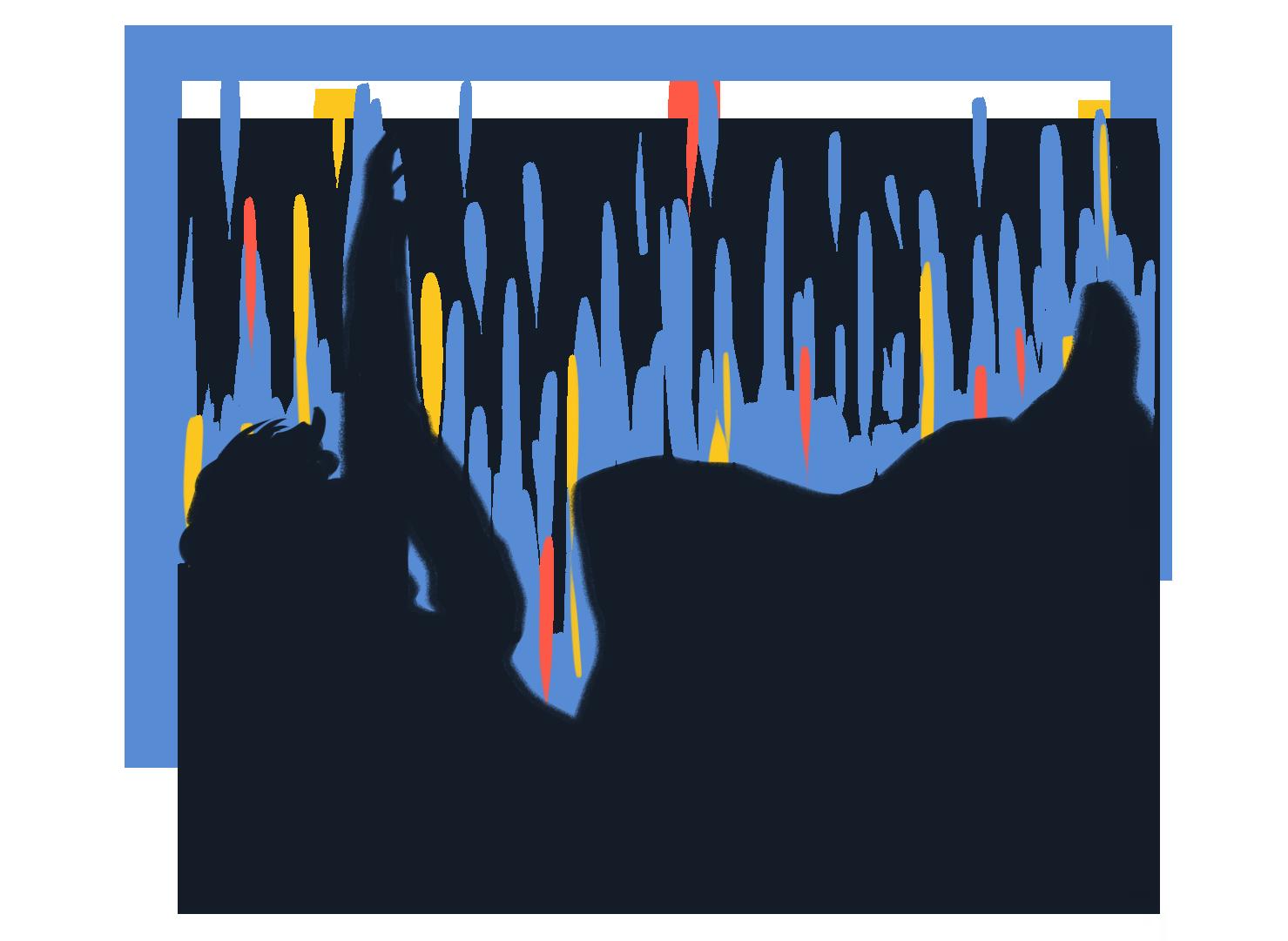


Libya's devastation is not reduced to internal repression alone, but is exposed as a direct manifestation of external interventions that transformed the revolution into an arena for settling imperialist scores and transformed the dream of liberation into armed chaos.
This perfectly parallels what Walid experiences in his narrative about Sudan: the militarization of life, the privatization of pain, and the disintegration of society under the weight of intertwined systems from within and without. Nofal does not construct his narrative as a "victim" story, but rather reconstructs losses as a structure of political consciousness. He says, "If I hadn't left Libya, I'm sure I would have been dead—by suicide." But suicide here is not only a possible end, but also an indicator of a lost horizon, a blocked imagination.
As in Walid's story, survival becomes a charged act: not merely an escape from immediate death, but a resistance to symbolic extinction.
What distinguishes this stage of the narrative is Nofal's awareness of the limits of survival within the Canadian system. While Canada has afforded him a minimal level of physical safety and relative freedom, it is also, as he describes, an "occupying state" practicing policies of assimilation and marginalization. His critique of the 1982 "Multiculturalism" law not only diagnoses institutional hypocrisy, but also relies on a clear and declared loyalty to Indigenous peoples, as a political and moral alliance with the oppressed everywhere.
Sexual openness in Canada does not completely liberate him; rather, it confronts him with a new catalog of expectations, where same-sex relationships become governed by the model of "steady partners" and marriage. Nofaldoes not reject love, but rather refuses to frame it within ready-made templates. He believes that desire should be experienced not as compliance, but as a free choice.

Here, he intersects once again with Walid's thought: that queer life is not just an identity, but a practice of rejection, difference, and reimagining. Love in Nofal's life, as demonstrated in the moment of embrace with Tom, is not a romantic detail but a vivid declaration of the body as a space of wonder.
This body, forcibly politicized, is transformed by fleeting joy into a site of power, a site that terrifies and inspires. Even in moments of violence or rejection, Nofal insists: "I believe that love is a revolution— and that revolution is temporary." In doing so, he offers a sharp understanding of politics as an everyday act, governed by influence rather than permanence.
Montreal, at the end of the chapter, emerges not as an ideal city, but as a place with "back streets" and walls that speak. In these marginalized spaces, Nofal finally finds the possibility of narrative, not as mere confession, but as resistance.


Chapter Four: Every Love Has Its Own Language —
When Farewell Is a Melody
When it comes to love, I always say that I was raised by Fairuz and Nizar Qabbani. As a child, my mom and dad used to listen to Fairuz all the time, and the first song I memorized was “My Love Wants the Moon and the Moon Is Far Away.” Thinking back now, when I was seven years old, it was Children’s Day, and I had never experienced romantic or familial love except in Turkish TV series and Fairuz’s songs.
On Children’s Day, it occurred to me to memorize the song “I Write Your Name, My Love” and sing it in class. The song talks about unrequited love. Strangely, something drew me to it: the honesty with the self. It was the first time I understood that one can love alone. And I have always been romantic with myself. Love, for me, is full of emotions; there is drama, passion, and heartbreak. Fairuz and Nizar Qabbani taught me that at the end of love there shouldn’t be insult or blame. There should always be
tenderness, an admission of mistakes, and always a calm farewell. Now, I see love as a revolution. I don't believe that relationships last forever, and I don't need them to. I believe in fleeting love, which is created by a certain circumstance, by the psychology of the moment, by a geographical location, by a need. Every love relationship is different. No story is the same as the other. I believe in true love built on clarity. When I came to Canada, I was reading a collection of poetry by Khaled Mattawa, who writes in English.
There was a poem that had a line that said: "As for the terms of love, I failed to call you with any word I did not whisper to her." The sentence stuck in my head. Why do I always like to call my lover by a new name in every love affair? A word from their language? Mexicans say "mi amor," and I called my Mexican lover "cito," an endearingdiminutive. I call everyone I date by a special word.
I like love to have its own mark, its own way, its own language. I like love to be very personal and unique. I am aware that relationships are built on desire, and desire is fleeting. And I love sex, I love passion, and I know that passion fades.
I can't lie to myself or to others. So I am at peace with the idea that my desire can go away, and just as my desire goes away, his desire goes away. This isn't a threat, it's awareness. I like love that soars above societal expectations. Not only those of the heterosexual community, but even



In this chapter, Nofal redefines love as a real moment measured not by duration, but by honesty and clarity. For him, love is not a long-term project, but a fleeting experience created by a particular circumstance, a changing desire, and a unique personal language.
His emotional upbringing on the voice of Fairuz and the words of Nizar Qabbani shaped his initial awareness of love as a soft emotional state, not a social duty.
He believes that desire does not last, and acknowledging its transience is not a failure but rather an awareness. This is why he rejects the "partner" model and relationships that conform to the expectations of queer or heterosexual communities. For him, language is a tool of love—every relationship has its name, its dialect, and its impact.
Love in his life is like Fairuz's songs: it has a beginning, an end, and a lasting impact.


Chapter Five: Difference Doesn't Need Permission — When Freedom Is
an Inner Language
Many of our feelings stem from present-day culture. Culture influences our worldview. Psychologically, culture comes from the subconscious. Culture is fleeting, not confined by borders. Even my Arab culture is fleeting. I don't see my culture as confined to a specific history or time. Even the influence of Canadian society is present. I have a strong connection to my history, but I don't look backwards. I don't have any nostalgia, good experience, or connection to the past.
I'm not someone who seeks integration or belonging, and I'm happy with my life this way, and I'm happy to fly away from all societal restrictions. In some organizations that care for Arab gays in Montreal, I went to some events and I really didn't enjoy or fit in. I mean, in Canada, if you're Arab and gay, they expect a stereotypical gay story from you. I still in contact with my siblings and I have a wonderful relationship with my religion, language, and culture, but I've only experienced my gayness in English.
I feel that in Arab gay communities, there's a focus on the issue of suffering, and if you don't suffer, you won't find a reason to be around. I'm not comfortable with their dream of integration, the politicized expectations, and the similarities between us. If anyone asks me, "Should I go to them or not?" I'd tell them, "Don't go." There's an organization that cares for Arabic speakers, and the people in charge of this organization aren't even Arabic speakers. They’re second and third generations of Arab descent. I feel that most of the movement in Canada is performance-based, nothing more.
In Victoria, the first city I went to, there weren't many Arabs, but I've always been drawn to Arabic speakers and have a great deal of ethnic diversity in my friendships. Arabic is the third language in Montreal and I'm surrounded by Arabs with different cultures and ideas, but I don't have strong relationships with Arab gays, or even the Arab gay community. I only have acquaintances. I do have relationships with Arab straights. They're lovely and I feel comfortable with them. I've had limited, fleeting sexual and romantic experiences with Arabs, experiences that are nice and dear to my heart.
I love diversity: I see it starting with mental and physical abilities and genetic inheritance; there are people with autism or neurodiversity, differences in appearance and differences in self-expression, desires, religions, race with religion, origin, diaspora, and colonial countries.
I see different relationships with language, culture, religion, and gender and sexual identities. It's not necessary that I agree with this diversity; I respect people's freedom, but I may have opinions about their differences. I see that we as humans are very different for reasons beyond our control: for example, the indigenous people of Canada have many words to describe plants that English-speaking Canadians don't understand, even the movies we watch, and religion has an impact, as do disabilities and abilities. Instead of ignoring this diversity, we must admit and confirm it, without focusing on the differences. So that we can meet each other and coexist with each other and not feel like someone is doing others a favor by accepting them.
I always get a question that makes me laugh so hard. They say, “Do your brothers accept your homosexuality?” And I tell them, “I accept their heterosexuality. It happens.”
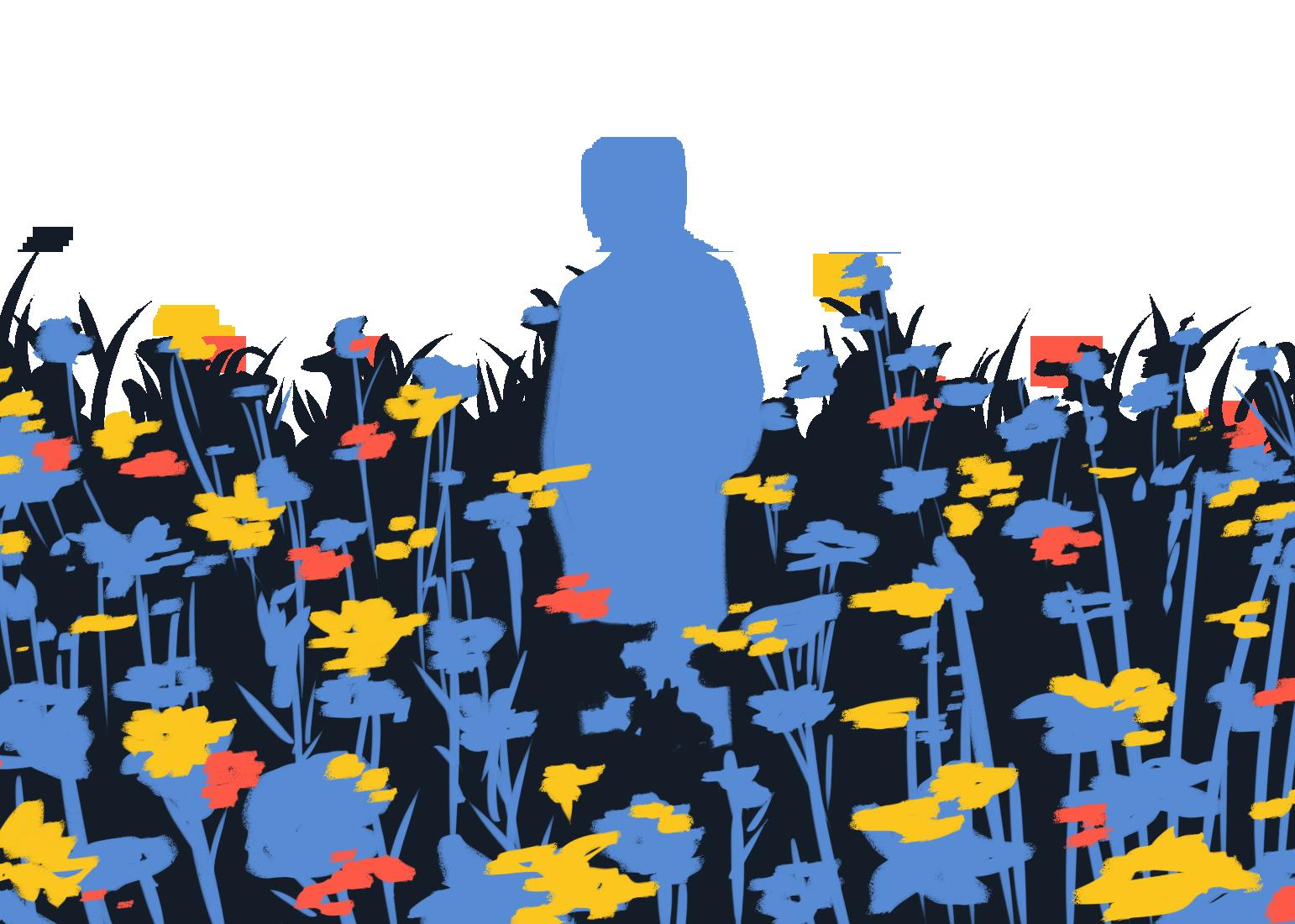

In this chapter, Nofal weaves a calm and reconciled contemplation of his place in the world, far removed from the pressures of belonging, whether to Arab queer culture in the diaspora or to the circles of social and political integration in Canada.
He does not seek containment, nor does he search for communities that will recognize him. He knows himself by himself, and that is enough. Nofal doesn't necessarily see homosexuality as a struggle, but rather a personal experience lived in English, outside of Arab queer circles, whose discourse he finds is governed by the dichotomy of suffering/integration. He describes his experience with queer organizations in Canada as performative, filled with ready-made expectations, and not truly connected to his self or language. He goes, experiments, observes, and then decides never to return.
He views diversity as a fact of life, not a political project. He begins with neurological and physical makeup, and moves on to language, religious and ethnic affiliations, and diaspora. He rejects identification, but he does not reject the other. He respects difference without subordinating himself to it, and without



He laughs at the question, "Do your brothers accept your homosexuality?" — and answers with a sentence that reverses the context: "I accept their heterosexuality. It happens."
Here, Nofal does not present the experience of a victim, nor does he talk about a struggle with identity, but rather presents Survival awareness, that is soft, sarcastic, and profound. A consciousness that doesn't ask for space, because it has already created it, quietly, without noise. Nofal wasn't searching for belonging, nor for integration. He chose to live his own way, in his own language, and with the love he created for himself. He didn't want to justify his existence, nor to change himself.
From a young age, he realized that his salvation lay in his self-love, in preserving his body and his voice, even in the midst of violence and betrayal. What saved him wasn't a homeland, nor a dream, but rather himself.

Reflective conclusion
".Still, we go on living"
There is no real end to these tales. Not only because life goes on, but because pain never ends, and love never runs out. The people behind these stories are still searching for meaning, moving between places, between relationships, between moments of calm and silence and inner screaming.We do not promise happy endings, nor eternal hope. Sometimes there's only a small chance that life could be less cruel, but that chance alone might be enough to keep going.
They chose to tell, not because they were waiting for salvation, but because the voice that is not heard is erased. Not because they represent anyone, but because they wanted to be written about—as they are, not as they are supposed to be.
Resistance is not always on platforms or in slogans. Sometimes it’s in a look, in a touch, in a simple confession, in a line written in a moment of honesty.
These are not heroic tales. Rather, they are living testimonies of real people, writing with wounds that have not healed, with perforated memories, with tired phones, and with hearts that have not stopped beating despite everything. They wrote, so that perhaps someone—perhaps you—will find himself or herself between the lines.
But after we hear, read and contemplate, some questions remain open:
What do we do with body memory? What is a homeland if not a home? How do we create queer communities that do not repeat violence? Is fleeting love enough to survive?


